
- Doing a PhD in Biotechnology
The general aim of a PhD in Biotechnology is to train top-level researchers in various areas of Biotechnology with a solid theoretical and methodological background, with a balance between basic and applied research that will enable them to tackle innovation problems in a multidisciplinary manner, with special emphasis on the bases and applications of biotechnology, so that graduates can work in industrial sectors, biotechnology companies, service companies, in the area of health, in public or private research centres, or as academics in universities.

What does a PhD in Biotech Involve?
The aim of a university PhD programme in Biotechnology is to prepare you to start and complete theoretical, methodological and research training in the multidisciplinary field of biotechnology, which takes the form of the preparation and defence of an innovative doctoral thesis.
Examples of topics you could investigate as part of your PhD research project include:
- Biomedicine: a field of study that focuses on understanding the cellular and molecular biology processes and their applications. It focuses on finding cures for diseases such as Alzheimer’s, cancer, etc.
- Plant biotechnology : area of study oriented towards fundamental and applied research in plant physiology and cell biology, functional genomics and plant-pathogen interaction.
- Bioinformatics: related to programming and data analysis in health issues and nanotechnology and computational modelling of biological systems. Research in nanoparticle biogenesis, microscopy, bioprocess engineering, systems biology and molecular modelling.
- Aquaculture biotechnology: a combination of science and practical skill in fish farming. The primary objective is to generate knowledge that can increase the productivity of aquaculture.
- Microbial biotechnology: focuses on both fundamental and applied research into the functioning of biological systems such as bacteria, viruses and yeasts for the generation of value-added products such as nanoparticles, proteins, biopolymers and probiotics.
A doctorate training programme in biotechnology aims to train PhD students to:
- Independently, with capacities, knowledge and skills to identify opportunities, develop and direct relevant research projects to develop biotechnological.
- Recognised for their ability to create knowledge and provide technological solutions in biotechnology for research centres, productive, educational and social sectors.
- Capable of linking up with the private sector so that the research is translated into improved technologies, processes and products that drive a country’s development.
- Ability to create, disseminate and ethically impart knowledge with a strong sense of responsibility and social duty.
Browse PhDs in Biotechnology
A next-generation genetic technology to identify biotechnologically-valuable enzymes and transporters, ubiquitin-dependent signalling pathways in ageing, exploring the impact of microplastic-bacterial complexes on animal health and the gut microbiome, energy dissipation in human soft tissue during impacts, micro-manufacturing of surface textures for enhanced electrosurgery, how long does it take to get a phd in biotechnology.
A Biotechnology PhD in the UK commonly takes between three and four years to complete if studying full-time, including a year for writing up your thesis , and between five and seven years if studying part-time or as distance learning.
What are the typical application requirements for a Biotech PhD?
The entry profile of a PhD candidate for a Biotechnology degree is a prospective student with an undergraduate degree, typically a 2:1 Master’s degree, in a field related to Biotechnology, Microbiology, Biochemistry, Food Science and Technology, Veterinary Medicine, Chemistry and Engineering. A background in biology is particularly favourable.
In addition to this, candidates will be expected to have:
- Excellent academic background and have a vocation for a graduate research area in one of the fields of knowledge promoted by the doctoral programme.
- Good written and oral communication skills in English.
- If you’re an international student, you must meet the university’s minimum English language requirement. This will typically be through an IELTS (Academic) or TOEFL examination.
How much does a PhD in Biotechnology cost?
Annual fees will depend on whether you’re a home or international student and the specific university you study within. However, annual tuition fees typically range between £4,407 – £15,607 for full-time study, and £2,203 – £7,803 for part-time study.
Career in Biotechnology for PhD Holders

Not everyone knows there are many career options available with an advanced degree in biotechnology , especially at a doctorate level. As such, biotechnology graduates do not strictly need to pursue a career as a scientist at a medical company.
Those who possess a higher education doctorate in biotechnology will be capable of working in the academic, scientific and industrial fields, both in the application and generation of knowledge. Research degree holders will have excellent communication skills and the capacity for critical analysis and scientific reasoning, which allows them to formulate complex problems and propose innovative solutions to them, leading groups of applied research in laboratories of public and/or private institutions.
Because of this, biotech PhD postgraduates can take up an opportunity from a range of industries, including:
- Quality Assurance and Control
- Manufacturing industry
- Clinical research
- Government policymaking
- Research & Development
- Software engineering
- Chemistry, biological science, and agriculture
- Business and Project management
- Biomedical science and Engineering
As well as undertaking a range of positions, biotech PhD holders can also work in a range of environments such as for government agencies, private companies, regulatory bodies, or clinical laboratories. People in biotech jobs range from small start-ups to big pharma companies to national departments such as UKRI.
Browse PhDs Now
Join thousands of students.
Join thousands of other students and stay up to date with the latest PhD programmes, funding opportunities and advice.
Molecular and Cell Biology
Doctoral Program
The Department of Molecular & Cell Biology at the University of California, Berkeley offers a Ph.D. program focused on the molecular mechanisms inherent to life. This program integrates research with a modern training curricula, teaching, and career mentorship. Our Department is highly interdisciplinary - comprising the Divisions of Cell Biology, Development & Physiology, Immunology and Molecular Medicine, Neurobiology, Biochemistry, Biophysics & Structural Biology, and Genetics, Genomics, and Development – and this is reflected in our students and training. The program is also highly collaborative with related programs and Institutes on campus, thus allowing students the flexibility to explore all aspects of modern biological research. Please click on the links below to learn more about our areas of research on the main department website or use the menu at the top to navigate to areas of interest within the graduate program.
Cell Biology, Development & Physiology
Immunology and molecular medicine, neurobiology, biochemistry, biophysics & structural biology, molecular therapeutics, genetics, genomics, evolution, and development.
Explore your training options in 10 minutes Get Started
- Graduate Stories
- Partner Spotlights
- Bootcamp Prep
- Bootcamp Admissions
- University Bootcamps
- Coding Tools
- Software Engineering
- Web Development
- Data Science
- Tech Guides
- Tech Resources
- Career Advice
- Online Learning
- Internships
- Apprenticeships
- Tech Salaries
- Associate Degree
- Bachelor's Degree
- Master's Degree
- University Admissions
- Best Schools
- Certifications
- Bootcamp Financing
- Higher Ed Financing
- Scholarships
- Financial Aid
- Best Coding Bootcamps
- Best Online Bootcamps
- Best Web Design Bootcamps
- Best Data Science Bootcamps
- Best Technology Sales Bootcamps
- Best Data Analytics Bootcamps
- Best Cybersecurity Bootcamps
- Best Digital Marketing Bootcamps
- Los Angeles
- San Francisco
- Browse All Locations
- Digital Marketing
- Machine Learning
- See All Subjects
- Bootcamps 101
- Full-Stack Development
- Career Changes
- View all Career Discussions
- Mobile App Development
- Cybersecurity
- Product Management
- UX/UI Design
- What is a Coding Bootcamp?
- Are Coding Bootcamps Worth It?
- How to Choose a Coding Bootcamp
- Best Online Coding Bootcamps and Courses
- Best Free Bootcamps and Coding Training
- Coding Bootcamp vs. Community College
- Coding Bootcamp vs. Self-Learning
- Bootcamps vs. Certifications: Compared
- What Is a Coding Bootcamp Job Guarantee?
- How to Pay for Coding Bootcamp
- Ultimate Guide to Coding Bootcamp Loans
- Best Coding Bootcamp Scholarships and Grants
- Education Stipends for Coding Bootcamps
- Get Your Coding Bootcamp Sponsored by Your Employer
- GI Bill and Coding Bootcamps
- Tech Intevriews
- Our Enterprise Solution
- Connect With Us
- Publication
- Reskill America
- Partner With Us
- Resource Center
- Bachelor’s Degree
- Master’s Degree
Best Doctorates in Biotechnology: Top PhD Programs, Career Paths, and Salaries
Biotechnology companies are among the most profitable businesses in the modern era, contributing to the development of several widely used products. The best PhDs in Biotechnology allow graduate students to take part in this global biotech revolution.
Biotechnology is a very in-demand field. However, several people doubt whether a doctorate in this broad field is the best choice. This article clearly explains everything you need to know about a Biotechnology PhD. It also shares important information on the best biotechnology jobs and the average PhD in Biotechnology salary.
Find your bootcamp match
What is a phd in biotechnology.
A PhD in Biotechnology is an advanced degree that helps students further understand how to take advantage of biological processes to create products for various industries. Biotechnology PhD degrees are usually research-intensive and include a lot of lab work.
How to Get Into a Biotechnology PhD Program: Admission Requirements
The requirements to get into a biotechnology PhD program are dependent on the specific institution you are applying to. However, most universities have similar admission requirements for their biotechnology doctorate degree programs.
Usually, before you are accepted into a biotechnology PhD program, you must have at least a Bachelor’s Degree in Biology, Chemistry, or any related life science major. In addition, you will be required to submit your transcripts, personal statement, letters of recommendation, and resume. Finally, if you are an international student, you will need to take an English proficiency test.
PhD in Biotechnology Admission Requirements
- Official transcripts
- Letters of recommendation
- Personal statement
- Proof of English proficiency (for international students)
Biotechnology PhD Acceptance Rates: How Hard Is It to Get Into a PhD Program in Biotechnology?
It is very hard to get into a PhD program in Biotechnology. Biotechnology is a competitive field and most schools only accept a handful of students who apply to these in-demand PhD programs. For example, in the 2020-2021 session, Stanford University only accepted 4.6 percent of the total number of applicants into its Bioengineering PhD program.
How to Get Into the Best Universities
[query_class_embed] how-to-get-into-*school
Best PhDs in Biotechnology: In Brief
Best universities for biotechnology phds: where to get a phd in biotechnology.
The best universities in biotechnology are well-equipped with modern equipment. They also have experienced faculty members to guide you through your academic journey. If you are wondering where to get a PhD in Biotechnology, check out the top schools listed below.
Arizona State University , founded in 1885, is one of the best-rated universities in the United States for PhD programs. This public university currently has 139 doctoral programs available in various areas such as life sciences, arts, and business.
PhD in Molecular/Cellular Biology
Arizona State University's PhD in Molecular/Cellular Biology program is an 84-credit degree that teaches students how to understand biological activity from a cellular level. This program also covers topics in genetics and provides several electives for students to choose from, including a course on bionanotechnology.
PhD in Molecular/Cellular Biology Overview
- Program Length: 4 - 5 years
- Acceptance Rate: N/A
- Tuition and Fees: $837/credit hour (in state); $1,308/credit hour (out of state)
- PhD Funding Opportunities: Research fellowships, teaching assistantships
PhD in Molecular/Cellular Biology Admission Requirements
- Bachelor’s or Master’s Degree in Biochemistry, Biological Sciences, or related field
- Completed online application
- Undergraduate applicants must have a minimum cumulative GPA of 3.0 on a 4-point scale in the last 60 hours of their degree program
- Graduate applicants must have a minimum cumulative GPA of 3.0 on a 4-point scale
- Transcripts
- Three letters of recommendation
- Proof of English language proficiency
- Non-refundable $70 application fee; $115 for international students
Brown University is a research-focused university that trains students to create innovative solutions to complex global problems. It was founded in 1764 and offers 51 PhD programs in fields such as art and history, life science, and social science disciplines.
PhD in Biotechnology
The PhD in Biotechnology is offered by the Department of Molecular Pharmacology, Physiology, and Pharmacology at Brown University. This degree is a 24-tuition unit course and covers several concepts applied in industry jobs such as drug delivery and diagnostics. Graduates of this program will be able to work in diverse roles in the biomedical industry and academia.
PhD in Biotechnology Overview
- Program Length: 3 years
- Acceptance Rate: 10.5%
- Tuition and Fees: $7,835/course per year
- PhD Funding Opportunities: Teaching assistantship, research assistantship, fellowship, proctorship
- Bachelor's Degree in Biology, Physics, Biochemistry, Engineering, or Chemistry
- Online application form
- $75 application fee
- Proof of English proficiency (international non-native English-speaking applicants)
Founded in 1636, Harvard University is one of the oldest and most reputable learning colleges in the US. This private university has 14 schools and provides graduate education in several topics, including bioinformatics, applied physics, and architecture.
PhD in Molecular and Cellular Biology
Students enrolled in Harvard University's Molecular and Cellular Biology course will attend lectures spanning various biomedical science topics such as biochemistry, genetics, cellular biology, and microbiology. Upon graduation from this doctorate program, you will also be equipped with practical skills to enable you to work in diverse roles.
PhD in Molecular and Cellular Biology Overview
- Program Length: 5 years
- Tuition and Fees: $50,928 for first 2 years
- PhD Funding Opportunities: Grants, stipends, teaching fellowships, research assistantships
PhD in Molecular and Cellular Biology Admission Requirements
- Prior educational knowledge of chemistry, physics, biology, and mathematics
- Graduate School of Arts and Sciences online application form
- $105 application fee
- Statement of purpose with a maximum length of 1000 words
- Three letters of recommendation with at least one from a faculty member at previous university
- TOEFL Internet-based test score of 80 or more for international students
Pennsylvania State University was established in 1855. It is a public university with over 20 campuses located in different areas of Pennsylvania. Pennsylvania State University delivers top-notch graduate programs in biomedical engineering and other life science-based disciplines. It also provides courses in the arts and social sciences.
PhD in Biomedical Engineering
This 29-credit doctorate degree program helps to prepare students to work in research institutions, academia, and industry roles. Students enrolled in the PhD in Biomedical Engineering program will study topics like bioimaging, drug delivery, and computational techniques for understanding biological systems.
PhD in Biomedical Engineering Overview
- Tuition and Fees: $11,541/semester (in state); $19,624/semester (out of state)
- PhD Funding Opportunities: Graduate assistantships, fellowships
PhD in Biomedical Engineering Admission Requirements
- Bachelor's Degree in Engineering, Physics, or any life science discipline
- Online application form via Pennsylvania State University's graduate school online application portal
- $65 application fee
- Score of at least 80 (TOEFL) or 6.5 (IELTS) for international students as proof of English proficiency
- Statement of purpose
- Resume (optional)
Stanford University was established in 1885 and has consistently ranked among the top colleges in the US for graduate students. Stanford University provides PhD programs in cancer biology, biochemistry, genetics, and several in-demand medical science fields. It also delivers top-quality education in engineering, business, and law-based topics.
PhD in Bioengineering
This five to six-year doctorate program is designed to provide students with a well-rounded educational experience in bioengineering. Participants will be allowed to rotate between three labs in their first year before deciding on their dissertation advisor. This program also includes in-demand courses such as systems biology and computational protein modeling.
PhD in Bioengineering Overview
- Program Length: 5 - 6 years
- Acceptance Rate: 4.6%
- Tuition and Fees: $11,770/quarter consisting of 8 - 10 units
- PhD Funding Opportunities: Fellowships, research assistantships, teaching assistantships, graduate student loans
PhD in Bioengineering Admission Requirements
- Bachelor's degree from a related field
- Scanned copy of academic transcripts via the application portal
- Two-three page statement of purpose
- TOEFL scores (international applicants from non-native English speaking countries)
- Non-refundable $125 application fee
Syracuse University is a multidisciplinary private school founded in 1870. This university has 13 colleges and schools, including Visual and Performing Arts, Architecture, Engineering, and Computer Science, which offer reputable graduate programs.
The PhD in Bioengineering is a rigorous 42-credit hour program that usually takes about five years to complete. Students enrolled in this doctorate degree program will be allowed to choose from one of 10 currently available research areas, including molecular biotechnology, catalysis and reaction engineering, and metabolic engineering.
- Tuition and Fees: $32,436/academic year
- PhD Funding Opportunities: Fellowship, research assistantships, graduate assistantships, scholarships
- Online application form on Syracuse University's graduate application portal
- 500-word personal statement
- Proof of English language proficiency (for international applicants)
- Financial documents, including proof of financial support (international students)
- $75 application fee
Tufts University was established in 1852 to solve complex global problems through research. This private college has over 370,699 square feet of lab space spread across its four campuses. It offers graduate programs covering public policy, public health, business, and technology.
PhD in Biotechnology Engineering
Tufts University's PhD in Biotechnology Engineering program is provided by the Department of Chemical and Biological Engineering. This doctorate program is structured to allow individuals from different academic backgrounds to participate. It includes courses on protein purification, microbe cultivation, and cellular engineering.
PhD in Biotechnology Engineering Overview
- Program Length: 4 years
- Tuition and Fees: Covered by tuition scholarship
- PhD Funding Opportunities: Teaching assistantships, research assistantships
PhD in Biotechnology Engineering Admission Requirements
- Bachelor's degree in Biology, Biotechnology, Biochemistry, or Chemical Engineering
- Online application
- Non-refundable $85 application fee
- Minimum TOEFL score of 90, an IELTS score of 6.5, or a Duolingo score of 110 (international applicants from non-native English speaking countries)
University of California, Berkeley has 14 schools and colleges and offers over 100 graduate programs for prospective students. Since its inception in 1868, the University of California has become a leading destination for graduate students due to its hands-on approach to learning and research.
PhD in Molecular and Cell Biology
The University of California, Berkeley's PhD in Molecular and Cellular Biology provides a deep dive into the structure and function of cells. It covers several essential aspects of medical and life sciences, including structural biology, genetics, computational biology, and immunology.
PhD in Molecular and Cell Biology Overview
- Program Length: 3 - 5 years
- Tuition and Fees: $5,721/semester
- PhD Funding Opportunities: Fellowships, stipend
PhD in Molecular and Cell Biology Admission Requirements
- Completed at least one year of chemistry, calculus, physics, and general biology in your undergraduate program
- Completed advanced coursework in microbiology, cell biology, biochemistry, or other similar subjects
- Graduated with a minimum GPA of 3.0 on a 4-point scale
- Laboratory research experience
- Submit TOEFL scores of 570+ (written test), 233 (computer-based test), or 90 (Internet-based test) for international applicants
- Unofficial transcripts
- GRE scores (optional)
The University of Pennsylvania , founded in 1740, delivers many top-rated graduate degree programs via its 12 graduate and professional schools. The University of Pennsylvania is one of the most popular public schools for graduate students, with over 16,000 students currently pursuing post-graduate education on its campus.
The Penn Bioengineering PhD was the first-ever doctorate bioengineering program in the US. This graduate degree program has a comprehensive curriculum to equip students with the technical skills to land the best jobs at biotech companies .

"Career Karma entered my life when I needed it most and quickly helped me match with a bootcamp. Two months after graduating, I found my dream job that aligned with my values and goals in life!"
Venus, Software Engineer at Rockbot
- Acceptance Rate: 15%
- Tuition and Fees: $39,838/year
- PhD Funding Opportunities: Fellowships, grants
- Online graduate application form
- Bachelor's degree in Engineering or a physical science, natural science, or math major
- Submit TOEFL scores of 600+ (written test), 250 (computer-based test), or 100 (Internet-based test) for international applicants
Founded in 1969, the University of Texas, San Antonio has been recognized by Times Higher Education as one of the best young universities in the US . This public college has seven colleges and offers several highly-rated graduate degree programs.
PhD in Cell and Molecular Biology
Cellular and molecular medicine is one of the top new trends in pharmacological sciences for the future . This graduate degree program helps prepare students to play a significant role in this burgeoning industry. The PhD in Cell and Molecular Biology program also offers specialized tracks in Stem Cell, Molecular Microbiology, and Immunology.
PhD in Cell and Molecular Biology Overview
- Tuition and Fees: $247.53/credit-hour (in state); $428.63/credit-hour (out of state)
- PhD Funding Opportunities: Fully funded through internal grants
PhD in Cell and Molecular Biology Admission Requirements
- Bachelor's degree in Biology or any similar field
- Non-refundable $50 application fee; $90 international applicants
- Students from non-native English speaking countries must score a minimum of 6.5 on the IELTS test, 79 on the internet-based TOEFL test, or 60 on the paper-based TOEFL test
- International applicants must submit English proficiency scores of 6.5 (IELTS), 79 (Internet-based TOEFL) test, 60 (paper-based TOEFL)
Can You Get a PhD in Biotechnology Online?
No, you cannot get a PhD in Biotechnology online. Biotechnology PhDs usually involve hours of lab work and other technical aspects that can only be taught via an on-campus program. At the moment, if you are considering getting a biotechnology doctorate degree, you can only do so via an in-person program.
How Long Does It Take to Get a PhD in Biotechnology?
It takes three to five years to get a PhD in Biotechnology. Before you are considered eligible for a biotechnology PhD degree, you must have completed at least two years of coursework in various core topics. You will also need to carry out original research and present your findings in a dissertation.
Is a PhD in Biotechnology Hard?
Yes, earning a PhD in Biotechnology is hard. Biotechnology PhD students are required to carry out a lot of research and spend hours on lab work. However, you can earn your degree in the stipulated amount of time with commitment and effort.
How Much Does It Cost to Get a PhD in Biotechnology?
It costs $19,314 per year to get a PhD in Biotechnology , according to the most recent data released by the National Center for Education Statistics. However, your tuition costs can vary depending on the reputation of the school and the nature of your program.
For example, a PhD in Biotechnology costs about $25,929 per year for private institutions. Public universities, however, are much cheaper. The average yearly tuition cost for a PhD program at a public university in the US is $12,171.
How to Pay for a PhD in Biotechnology: PhD Funding Options
The PhD funding options that students can use to pay for a biotechnology doctorate program include teaching assistantships, research assistantships, and fellowships. Most universities provide incoming biotechnology PhD students with one or more of these options to reduce the cost of their tuition.
Best Online Master’s Degrees
[query_class_embed] online-*subject-masters-degrees
What Is the Difference Between a Biotechnology Master’s Degree and PhD?
The difference between a biotechnology master’s degree and a PhD is that a PhD program usually involves more intensive research and takes at least three years to complete. PhD degrees are typically pursued by individuals with a strong desire to contribute to existing knowledge in the biotechnology space. Master’s programs typically take two years to complete.
Master’s degree students spend a year or two on coursework and finish their program with a capstone project or thesis. Biotechnology PhD students spend at least two years on coursework and possibly longer on research before working on and submitting their dissertations.
Master’s vs PhD in Biotechnology Job Outlook
For job roles such as food scientist that are available to master’s degree graduates, the job outlook is 9 percent between 2020 and 2030, according to the Bureau of Labor Statistics. In comparison, biotechnology PhD jobs such as medical scientist roles are expected to grow by 17 percent in this same period.
Difference in Salary for Biotechnology Master’s vs PhD
According to PayScale, the average salary for professionals with a PhD in Biotechnology is $112,000 annually. However, in comparison, the average salary for master’s degree holders is $75,000 per year.
Graduates with a PhD degree have more experience and can command a higher salary and function in senior industry roles. Although a master’s degree is excellent for improving your career options, a PhD is better for landing the highest-paying job roles.
Related Biotechnology Degrees
[query_class_embed] https://careerkarma.com/blog/best-biotechnology-bachelors-degrees/ https://careerkarma.com/blog/best-biotechnology-associate-degrees/ https://careerkarma.com/blog/best-masters-in-biotechnology-degrees/
Why You Should Get a PhD in Biotechnology
You should get a PhD in Biotechnology because it can help you achieve your maximum potential in academia and propel the field further through your research. Biotechnology is a competitive field which means obtaining a PhD allows you to distinguish yourself from other candidates and increase your career options within the field of biotechnology.
Reasons for Getting a PhD in Biotechnology
- Higher salaries. A PhD in Biotechnology will help you gather rare and specialized skills which usually translates to higher-paying jobs. You will become qualified for many senior industry positions and significantly increase your earning potential by obtaining an advanced degree.
- Research opportunities. PhDs are research-focused degrees. So, if you are passionate about contributing to pre-existing scientific knowledge in the biological science space, a PhD in Biotechnology is an excellent way to add to your quota.
- Networking opportunities. A PhD program is an easy way to connect with other specialists in biotechnology and build potentially beneficial academic or business relationships. You will also be meeting faculty members who have years of experience and can provide you with mentorship.
- Boost your reputation. Getting a PhD is very useful for individuals seeking to establish themselves as an authority within the biotechnology space. PhD programs provide you with the necessary knowledge and research experience to become a leading voice in your industry.
Getting a PhD in Biotechnology: Biotechnology PhD Coursework
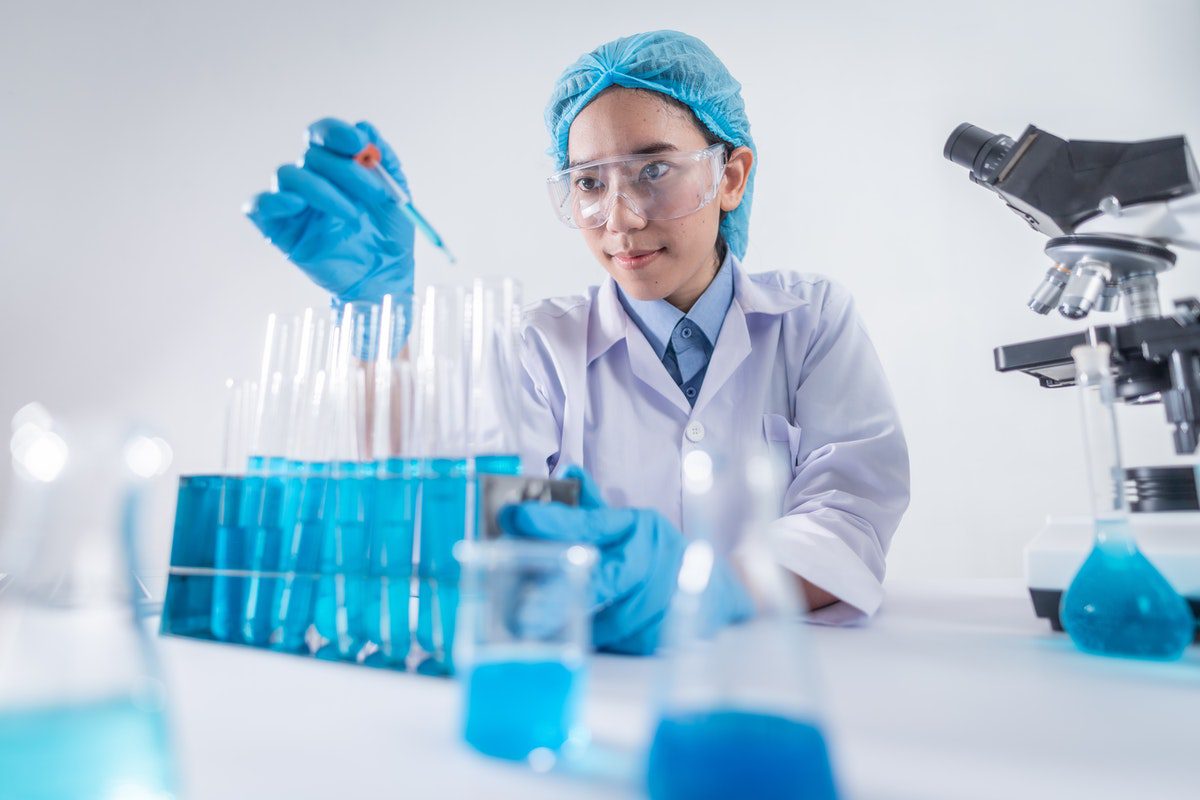
Getting a PhD in Biotechnology demands that you complete your course requirements as specified by your academic institution. The majority of PhD programs in biotechnology cover similar courses. Biotechnology PhD coursework usually spans cell biology, chemical engineering, and other scientific areas listed below.
Molecular Biology
In this course, PhD students in biotechnology will examine the mechanisms of biological activity from a molecular perspective. Graduate students taking a molecular biology course will be taught the structure and function of biological molecules. They will also learn the underlying scientific principles behind molecular interactions.
Introduction to Proteomics
Most advanced degree programs in biotechnology usually include an in-depth study of protein structure and function. Proteins are an essential component of cells and a pillar of several biological processes. Introduction to Proteomics teaches students about protein-protein interactions and relevant techniques for modifying proteins.
Bioengineering Fundamentals
Biological engineering is one of the most essential subjects for students pursuing an advanced degree in biotechnology. As a PhD candidate enrolled in a biotechnology program, you will learn scientific techniques for creating valuable products from biological systems. This course is helpful, especially for individuals seeking the best tech jobs at pharmaceutical tech companies .
Cell and Microbial Cultivation
Biotechnology specialists routinely carry out experiments with microbes. A cell and microbial cultivation course teaches students modern and relevant principles for culturing microorganisms in biotechnology labs. The technical skills obtained in this course will enable students to land a job with any of the leading biotechnology companies.
Introduction to Genomics
Genomics is a field of study in biological sciences that examines gene structure, function, and expression. In this course, students will be taught about concepts such as gene mapping, editing, and mutations. This course aims to provide students with the needed academic background to improve the quality of life in society through scientific interventions.
Best Master’s Degrees
[query_class_embed] *subject-masters-degrees
How to Get a PhD in Biotechnology: Doctoral Program Requirements
Unlike a Bachelor of Science in Biotechnology degree, doctoral program requirements are slightly more stringent. If you are interested in getting a PhD in Biotechnology, the requirements are outlined below.
Regardless of your university, each PhD program in biotechnology has a specified number of credit hours that graduate students must complete to be deemed qualified to receive a PhD certificate in biotechnology.
For most biotechnology PhD programs, you will be required to maintain a minimum passing grade of B, which is equivalent to a 3.0 GPA on a 4-point scale. Each school usually states its GPA requirements on its program page or catalog.
Seminars allow graduate students to demonstrate their knowledge of specific biotechnology topics. Attendance and participation in seminars organized by your university's biotechnology department is a vital requirement for obtaining a PhD in Biotechnology.
After carrying out a research project and gathering your findings, you will need to present your work to your faculty and other department members. A strong performance in your oral defense is mandatory for you to be eligible to receive your doctoral degree.
A thesis is one of the most essential requirements for students carrying out their doctoral studies in biotechnology. Your thesis is a write-up containing your findings from an original research project. For the duration of your thesis, you will be working closely with a supervisor who will provide guidance and instruction for your research efforts.
Potential Careers With a Biotechnology Degree
[query_class_embed] how-to-become-a-*profession
PhD in Biotechnology Salary and Job Outlook
Biotechnology is an interdisciplinary field whose relevance cuts across several sectors. As a result, biotechnology jobs will continue to be in high demand. For example, according to the Bureau of Labor Statistics, the job outlook for principal medical scientists is expected to increase by 17 percent through to 2030.
What Can You Do With a PhD in Biotechnology?
With a PhD in Biotechnology, you can work in academia, research institutes, and biopharmaceutical companies. There are several high-paying career options for biotechnology PhD graduates. Some of these jobs are listed below.
Best Jobs with a PhD in Biotechnology
- Industrial production manager
- Senior biochemical engineer
- Principal medical scientist
- Biotechnology lecturer
What Is the Average Salary for a PhD in Biotechnology?
The average salary for a PhD in Biotechnology is $112,000 per year, according to PayScale. Obtaining a PhD in Biotechnology also significantly increases your earning potential. Compared to bachelor’s and master’s degree graduates, PhD holders earn considerably higher salaries and are eligible to work in the most challenging biotechnology roles.
Highest-Paying Biotechnology Jobs for PhD Grads
Best biotechnology jobs with a doctorate.
The best biotechnology jobs with a doctorate enable graduates to make notable contributions to fields such as healthcare, agriculture, and education. They also provide attractive salaries and require the application of biotechnology principles to solve complex problems.
Biochemists can typically be found in universities, research firms, or pharmaceutical companies. They must study biological processes and apply bioengineering principles to produce beneficial products. Most biochemists work as part of a team in a laboratory environment.
- Salary with a Biotechnology PhD: $102,270
- Job Outlook: 5% job growth from 2020 to 2030
- Number of Jobs: 34,800
- Highest-Paying States: Massachusetts, Virginia, Colorado, New Jersey, Oregon
Senior biomedical engineers work with scientists and other healthcare professionals in the clinical setting. Their responsibility is to carry out comprehensive biological systems research and create medical inventions based on their studies. They also gather data and write technical reports.
- Salary with a Biotechnology PhD: $97,410
- Job Outlook: 6% job growth from 2020 to 2030
- Number of Jobs: 19,300
- Highest-Paying States: New Mexico, Arizona, Minnesota, Connecticut, Massachusetts
A principal medical scientist conducts thorough studies on various biological phenomena. As a principal medical scientist, you will be required to design your research methods, gather data, and propose a hypothesis.
- Salary with a Biotechnology PhD: $95,310
- Job Outlook: 17% job growth from 2020 to 2030
- Number of Jobs: 133,900
- Highest-Paying States: Connecticut, Maine, Delaware, New Jersey, Tennessee
Biotechnology lecturers can be found in universities. They work as part of their academic institution's biotechnology department to carry out research and train students in modern biotechnology applications.
- Salary with a Biotechnology PhD: $79,640
- Job Outlook: 12% job growth from 2020 to 2030
- Number of Jobs: 47,690
- Highest-Paying States: Arkansas, California, New Hampshire, California, New York
Food scientists are research-oriented professionals. They use their knowledge of biology and chemistry to improve the quality of food products and devise safe and effective food processing methods. As a food scientist, you will be working predominantly in the laboratory as part of a research team.
- Salary with a Biotechnology PhD: $74,160
- Job Outlook: 9% job growth from 2020 to 2030
- Number of Jobs: 37,400
- Highest-Paying States: Colorado, Kansas, Connecticut, Ohio, Minnesota
Is a PhD in Biotechnology Worth It?
Yes, a PhD in Biotechnology is worth it. Biotechnology is a vast field with several highly profitable industry jobs. Therefore, individuals with expert knowledge of biological processes and how to create valuable products using bioengineering techniques are in high demand.
With a PhD in Biotechnology, you can work in pharmaceutical, cosmetic, agricultural, food processing, and medical diagnostic companies. Although graduates with a bachelor’s or master’s degree can still get a very high-paying job within these fields, a PhD will increase your pool of choices and enable you to land senior roles which attract the best salaries.
Additional Reading About Biotechnology
[query_class_embed] https://careerkarma.com/blog/biotech-companies/ https://careerkarma.com/blog/bachelor-of-science-biology/ https://careerkarma.com/blog/best-online-biotechnology-bachelors-degrees/
PhD in Biotechnology FAQ
The academic background needed for a biotechnology PhD includes a Bachelor’s or Master’s Degree in Biology, Chemistry, Microbiology, or any other life science discipline. Individuals with art or social science backgrounds will not be eligible for admission into a biotechnology PhD program.
Yes, a biotechnology graduate can work in the agricultural sector. Several companies that manufacture agricultural products have research teams that investigate potential methods to improve the quality of their produce. PhD holders in biotechnology can easily find jobs in any of these organizations.
Yes, biotechnology is a very interesting field. If you are intrigued by biology or chemistry and want to know how you can translate your knowledge of life science concepts into innovative solutions to complex problems, then you will enjoy participating in a biotechnology doctorate program.
Yes, there are many good jobs for biotechnology PhD graduates. Biotechnology offers an abundance of career opportunities in academia and the biotechnology industry. Through a PhD program, you can acquire rare and in-demand skills, which will help you land a fantastic job.
About us: Career Karma is a platform designed to help job seekers find, research, and connect with job training programs to advance their careers. Learn about the CK publication .
What's Next?
Get matched with top bootcamps
Ask a question to our community, take our careers quiz.

Leave a Reply Cancel reply
Your email address will not be published. Required fields are marked *


- Prospective Students
- Current Students
- Parents & Families
- Employers & Partners
Information for
- Request Info
- Academics & Research >
- Find Your Program >
PhD in Bioscience and Biotechnology, Interdisciplinary
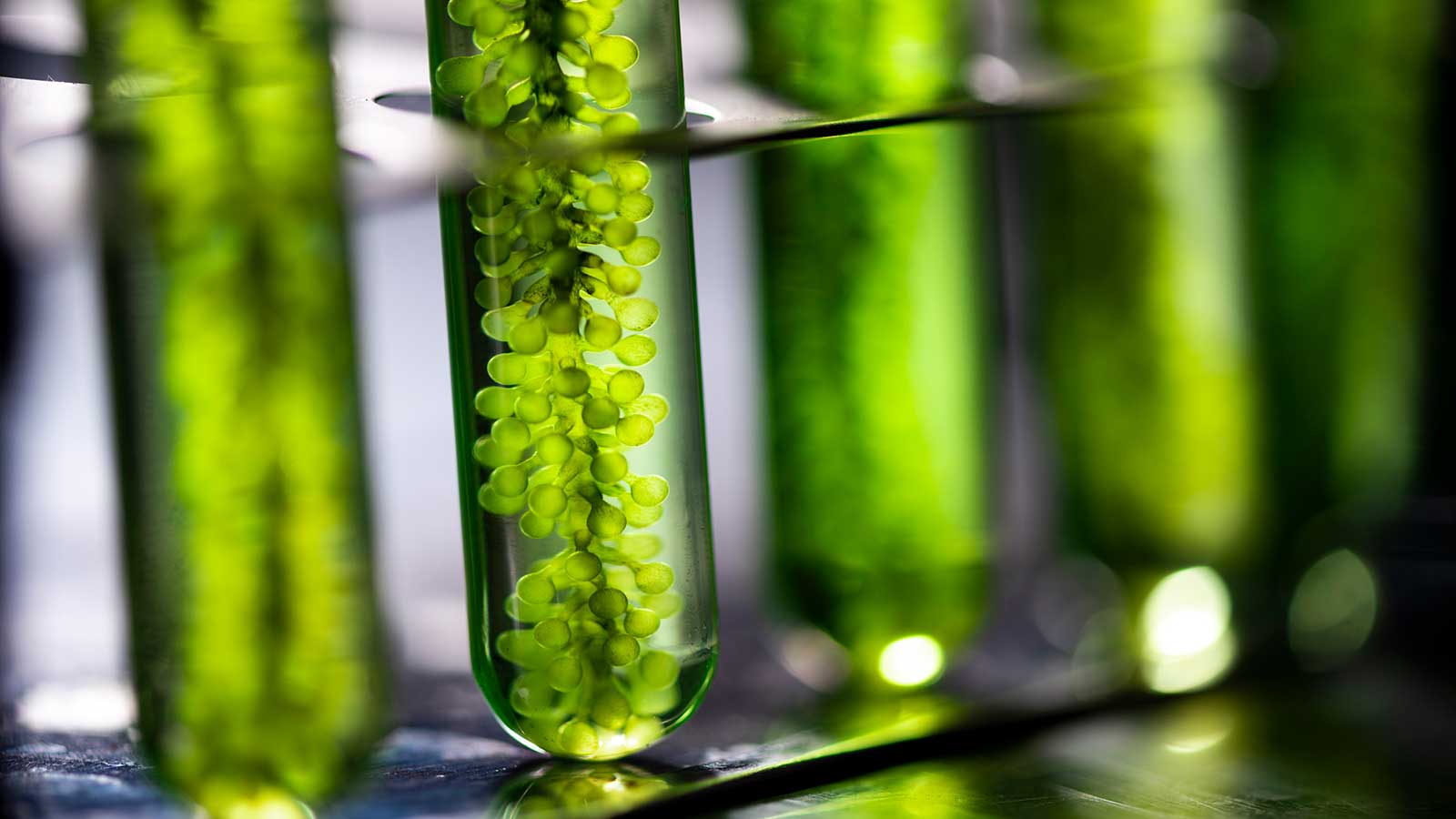
Advance Solutions by Becoming an Expert in Your Field
The interdisciplinary PhD in Bioscience and Biotechnology gives you the opportunity to work on complex challenges in the field. Through additional coursework, you will specialize your knowledge and gain the technical skills to come up with innovative solutions through the study of cells. The degree will open the doors to competitive opportunities in academia or private industry.
Why Earn a PhD in Bioscience and Biotechnology From Clarkson?
Clarkson University's PhD in Bioscience and Biotechnology offers a rigorous curriculum and extensive research opportunities for you to become a scholar in the field. During your studies, you will have access to our state-of-the-art facilities and other resources to complete your original projects.
The curriculum is interdisciplinary, and our faculty reflect that scope. You'll be able to work closely with biologists, chemists, physicists, mathematicians and engineers as mentors. Your advisor will help you create an individualized plan that focuses on your areas of interest. Class sizes are small to encourage collaboration and team-building — skills you'll find in laboratories all over the world.
By the time you graduate, you will have acquired specialized knowledge and technical skills in molecular bioscience and biotechnology, the biomedical sciences and neuroscience, computational biology and bioinformatics, ecology and evolution and the environment. Your training will prepare you for further research opportunities in academia or senior roles in related industries.
What You'll Learn
This program consists of 90 credit hours of coursework, seminars and a dissertation. The required courses include:
- Two core courses in cell and molecular biology.
- One biotechnology or molecular biology lab course.
- Two specialization elective courses from one of four categories (Molecular Bioscience & Biotechnology; Biomedical Science & Neuroscience; Computational Biology & Bioinformatics or Ecology, Evolution & the Environment).
- One free elective course from any category.
- One course from the Computational Biology & Bioinformatics category.
- One course on bioethics, policy or law.
We offer the following areas of concentration:
- Biomedical Science & Neuroscience
Computational Biology & Bioinformatics
- Ecology, Evolution & the Environment
Molecular Bioscience & Biotechnology
Required Courses
Specific course requirements for the Interdisciplinary Bioscience and Biotechnology (IBB) program include the following: two core courses in cell and molecular biology (BY580 & BY582); one biotechnology or molecular biology lab course (BY512 or CM570); two specialization elective courses from one of four categories (Molecular Bioscience & Biotechnology; Biomedical Science & Neuroscience; Computational Biology & Bioinformatics; Ecology, Evolution & the Environment); one free elective course from any category; one course from the Computational Biology & Bioinformatics category; and one course on bioethics, policy, or law.
Example Courses and Concentrations
- BY510 Developmental Biology (3 cr)
- BY512 Molecular Biology Laboratory (4 cr)
- BY515 Recent Advances in Immunology Research (1 cr)
- BY560 Comparative Physiology (3 cr)
- BY562 Comparative Physiology Laboratory (2 cr)
- BY580 Advanced Cell Biology (3 cr)
- BY582 Molecular Genetics (3 cr)
- BY586 Molecular Biotechnology (3 cr)
- BY650 Biochemistry I (3 cr)
- BY651 Biochemistry II (3 cr)
- BY652 Pharmacology (3 cr)
- CM520 Separations and Electrochemistry (3 cr)
- CM530 Colloid and Interfaces (3 cr)
- CM544 Medicinal Chemistry (3 cr)
- CM553 Medicinal and Pharmaceutical Biomaterials (3 cr)
- CM566 Bioelectronics & Bionanotechology (3 cr)
- CM570 Biochemistry & Biotechnology Laboratory (3 cr)
- ES552 Biomaterials & Biomedical Engineering Applications (3 cr)
- PH526 Introduction to Biophysics (3 cr)
Biomedical Sciences & Neuroscience
- BY518 Principles of Toxicology and Epidemiology (3 cr)
- BY519 Immunobiology (3 cr)
- BY520 Microbiology (3 cr)
- BY540 Introduction to Biomedical Rehabilitation Engineering & Science (3 cr)
- BY548 Medical Microbiology (3 cr)
- BY555 Cell and Molecular Biology of Cancer (3 cr)
- BY560 Neurobiology (3 cr)
- BY571 Anatomy & Physiology I (3 cr)
- BY572 Anatomy & Physiology II (3 cr)
- BY573 Anatomy & Physiology Lab I (2 cr)
- BY574 Anatomy & Physiology Lab II (2 cr)
- BY576 Current Topics in Biology & Medicine (3 cr)
- BY588 Stem Cells and Regenerative Medicine (3 cr)
- BY604 Molecular Pharmacology (3 cr)
- ME380 Special Topics: Biomechanics (3 cr)
- BY514 Bioinformatics (4 cr)
- BY610 Ecological Statistics and Experimental Design (3 cr)
- ES505 Design of Experiments and Analysis of Data (3 cr)
- MA571 Numerical Solution of Differential Equations (3 cr)
- MA580 Introduction to Monte Carlo Simulation (3 cr)
- STAT582 Mathematical Statistics I (3 cr)
Ecology, Evolution, and the Environment
- BY525 Biological Systems & Environmental Change (3 cr)
- BY528 Conservation Biology (3 cr)
- BY531 Limnology (3 cr)
- BY532 Limnology Laboratory (2 cr)
- BY620 Evolution (3 cr)
- CE575 Coastal Engineering (3 cr)
- CE577 Atmospheric Chemistry (3 cr)
- CE579 Water and Wastewater Treatment Design (3 cr)
- CE580 Environmental Chemistry (3 cr)
- CE682 Environmental Biological Processes (3 cr)
- CH509 Receptor Modeling in Environmental Chemistry (3 cr)
- EHS505 Methods and Analysis (3 cr)
- ES533 Human Exposure Analysis (3 cr)
- ES534 Air Pollution Control (3 cr)
To apply, candidates must fulfill the following criteria:
- Possess a baccalaureate (four-year) degree in biology or a relevant science (e.g., biochemistry, biophysics, environmental science).
- Three semesters of biology, including genetics.
- Four semesters of chemistry, including organic chemistry.
- Two semesters of physics.
- Two semesters of mathematics, including calculus.
Solving real-world problems based on cutting-edge research is at the core of what we do. With access to nationally recognized faculty and 18 research centers and laboratories, we have the resources you need to advance in your field. Our more than 380 partners in industry, government agencies, chambers of commerce and research organizations also offer graduate students a wealth of opportunities to continue doing their important work.
Research
Our faculty are recognized as leaders in their respective fields and are at the helm of cutting-edge projects. They collaborate closely with each other to provide innovative solutions for complex problems. Our faculty members also value the talents of students and serve as active and engaged mentors.
Faculty
PhD in Bioscience and Biotechnology students have two options for completing their coursework: entirely onsite at our main campus in Potsdam, New York, or in a hybrid format, with a mix of online and onsite courses.
Many of our full-time, research-based master's and PhD programs are housed in Potsdam. You will be in close proximity to many of our research labs and centers, our libraries and other resources.
Potsdam Campus
A complete application consists of the following:
- Online Application Form.
- Statement of purpose.
- In your statement, please mention two or three faculty members who you believe would be good advisors/supervisors based on their research areas.
- Three letters of recommendation.
- Official transcripts.
- GRE test scores.
- Optional: Applications will be read without GRE test scores, but applicants should submit scores if they believe they will enhance their application.
- For international applicants, an English proficiency test is required.
- Minimum test score requirements: TOEFL (80) and TOEFL Essentials (8.5), IELTS (6.5), PTE (56) or Duolingo English Test (115).
- The English language-testing requirement is not waived based on language of instruction, nor do we accept university certificates. English testing is waived if an applicant has a degree from a country where English is the Native Language. Click here to see the list of these countries.
Prerequisites: Applicants should possess a baccalaureate (four-year) degree in biology or a relevant science (e.g., biochemistry, biophysics, environmental science) with the following minimum college course preparation: three semesters of biology, including genetics; four semesters of chemistry, including organic chemistry; two semesters of physics and two semesters of mathematics, including calculus.
All graduate students are considered for University merit-based financial assistance, including teachings assistantships, research assistantships, fellowships and scholarships. This aid is awarded by each academic department. Not all types of assistantships are available in all programs. Please visit the financial aid, costs and scholarships page to learn about department-specific assistance.
Teaching Assistantships
Teaching Assistantships (TAs) provide a stipend plus full tuition. Duties include an average of 12 hours of work per week for 50 weeks or 20 hours of work per week for 30 weeks. Duties may include assisting in the laboratory or recitation sections and grading of reports or homework.
Research Assistantships
Research Assistantships (RAs) require no teaching responsibilities and provide a standard stipend plus full tuition. Work is determined by the project's principal investigator (PI).
Career Possibilities
The PhD in Bioscience and Biotechnology opens the doors to competitive roles in academia and other research centers. Our graduates also go on to work in a variety of professions and fields, including:
- Agriculture
- Biotech companies
- Energy companies
- Environmental conservation
- Government agencies
- Healthcare companies
- Higher education
- Medical laboratories
- Pharmaceuticals
Recent Employers
You'll find our students employed by these leading organizations:
- Caris Life Sciences
- Embry-Riddle Aeronautical University
- Harford Community College
- New York State Department of Environmental Conservation
- Procter & Gamble
- Senti Biosciences
- Susquehanna University
Postdoctoral Work
Some students have pursued postdocs at schools like:
- University of California at San Francisco
Request Info Apply Now
| STEM OPT Eligible
Graduate Admissions Email: [email protected] Phone: 518-631-9831
Interested in learning more about the PhD in Bioscience and Biotechnology? Contact us today with your questions.
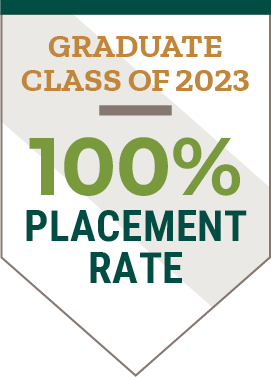
Explore Related Programs

PhD in Environmental Science and Engineering

PhD in Materials Science and Engineering
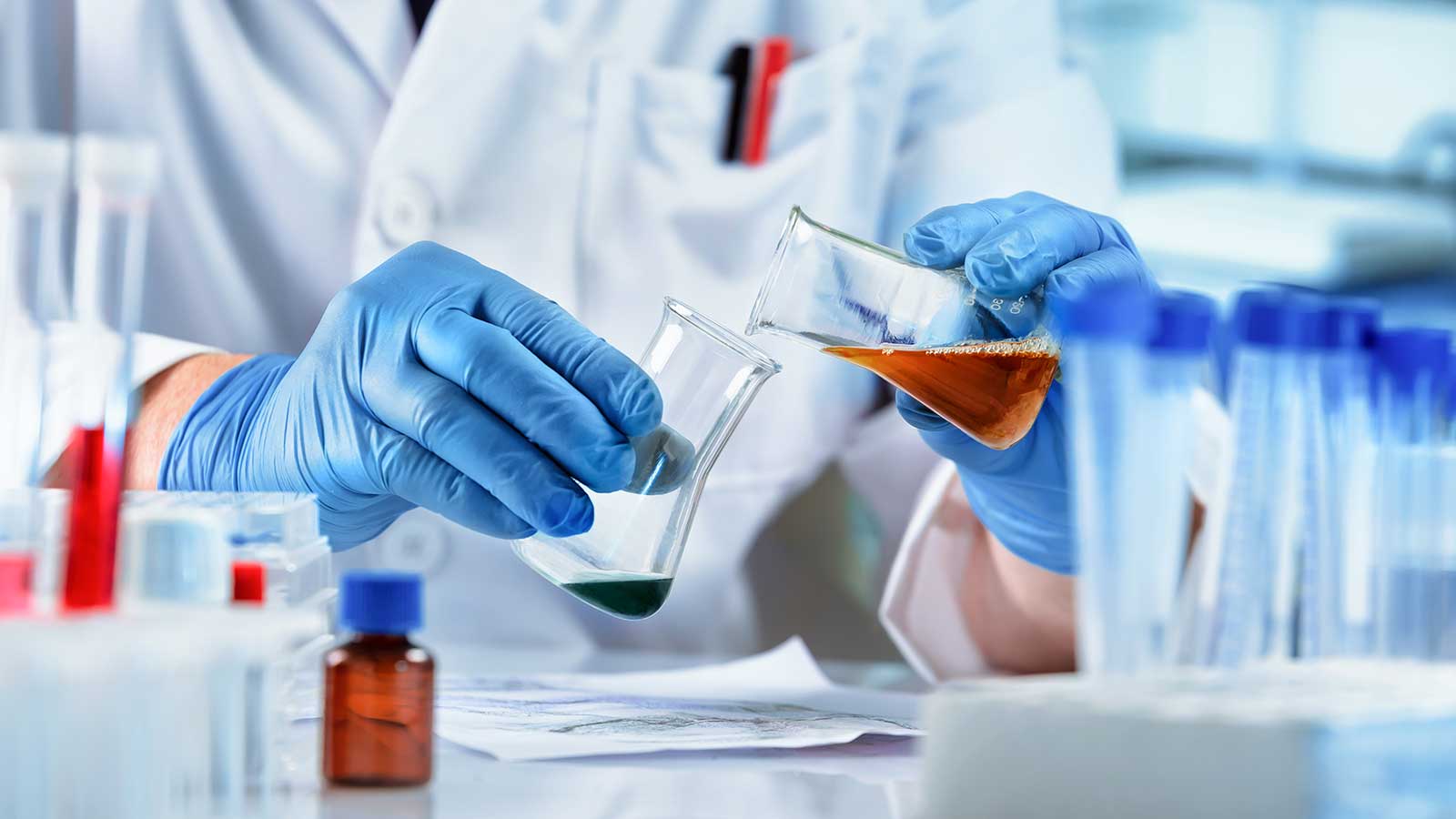
PhD in Chemistry
Achieve your purpose here.
Specialize your knowledge and become an independent scholar with a PhD in Interdisciplinary Bioscience and Biotechnology from Clarkson. To take the next step:

Best Global Universities for Biotechnology and Applied Microbiology
The broad field of biotechnology and applied microbiology covers topics on the manipulation of living organisms to make products or solve problems to meet human needs. Students in this field study genetic engineering; molecular diagnostic and therapeutic techniques; genome data mining; bioprocessing of food and drugs; biological control of pests; environmental bioremediation; and bio-energy production. This category also covers resources that deal with the related social, business and regulatory issues. These are the world's top universities for biotechnology and applied microbiology. Read the methodology »
To unlock more data and access tools to help you get into your dream school, sign up for the U.S. News College Compass !
Here are the best global universities for biotechnology and applied microbiology
Harvard university, massachusetts institute of technology (mit), stanford university, university of california san diego, university of cambridge, university of chinese academy of sciences, cas, johns hopkins university, technical university of denmark, university of california berkeley, university of queensland.
See the full rankings
- Clear Filters

- # 1 in Best Universities for Biotechnology and Applied Microbiology
- # 1 in Best Global Universities
Founded in 1636, Harvard University is the oldest higher education institution in the U.S. The bulk of Harvard's... Read More

- # 2 in Best Universities for Biotechnology and Applied Microbiology
- # 2 in Best Global Universities
Massachusetts Institute of Technology, founded in 1861, is located in Cambridge, Massachusetts, near Boston. Around... Read More

- # 3 in Best Universities for Biotechnology and Applied Microbiology
- # 3 in Best Global Universities
Stanford University was founded in 1885 and is located in California’s Bay Area, around 30 miles south of San Francisco... Read More

- # 4 in Best Universities for Biotechnology and Applied Microbiology
- # 20 in Best Global Universities
The University of California—San Diego is a public institution that was established in 1960. It is located in the La... Read More

- # 5 in Best Universities for Biotechnology and Applied Microbiology
- # 8 in Best Global Universities
The University of Cambridge, located around 60 miles north of London, traces its history back to 1209. Around 19,000... Read More
- # 6 in Best Universities for Biotechnology and Applied Microbiology
- # 112 in Best Global Universities (tie)

- # 7 in Best Universities for Biotechnology and Applied Microbiology
- # 10 in Best Global Universities
Johns Hopkins University is a private institution that was founded in 1876. The school has campuses located in and... Read More
- # 8 in Best Universities for Biotechnology and Applied Microbiology
- # 165 in Best Global Universities (tie)

- # 9 in Best Universities for Biotechnology and Applied Microbiology
- # 4 in Best Global Universities
The University of California—Berkeley is situated roughly 15 miles from San Francisco in what is known as the Bay Area... Read More

- # 10 in Best Universities for Biotechnology and Applied Microbiology
- # 36 in Best Global Universities
The University of Queensland Australia is a public institution that was established in 1909. It is located in and around... Read More
PhD in Biology and Biotechnology
As a student in WPI’s PhD in Biology and Biotechnology program, you will benefit from close mentorship by dynamic faculty who encourage creativity and inquisitiveness.
Value Proposition Description
Enabled by a world-class research infrastructure, students in our competitive program explore their passion for discovery while driving cutting-edge, hypothesis-driven research. You will work alongside interdisciplinary teams of WPI faculty, peers, and industry partners to make an impact in your field and explore topics that matter to you, from cancer biology and immunology research to studies of brain plasticity and pollinator decline.
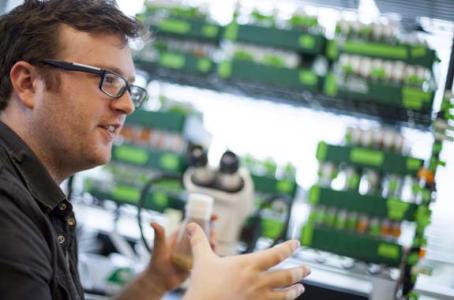
Through our well-rounded PhD in Biology and Biotechnology, you will delve into immersive research in biology and biotechnology while also sharpening your professional and pedagogical knowledge and skills. You will take core courses covering professional ethics, grant writing, and experimental design, and hone your communication skills by participating in department-wide research presentations. You may also take part in supervised teaching experiences and discuss interdisciplinary research initiatives in our Journal Clubs.
Students complete a qualifying exam by the end of the second year of study and round out required coursework with electives. Completion of PhD studies concludes with the preparation of a written thesis and successful oral defense.
To treat many infectious diseases, including the global scourge of tuberculosis, doctors must do battle with a wily adversary, bacteria. Unfortunately for afflicted patients, bacteria have also acquired strategies for thwarting attacks from the immune system and the onslaught of antibiotic drugs. We need to know more about the strategies bacteria use to survive stresses. Biology and biotechnology professor, Scarlet Shell, is seeking to do just that by probing the molecular changes that underlie these mechanisms.
WPI's Department of Biology and Biotechnology is home to a diverse and dynamic faculty body that employs cutting-edge research to explore and understand research topics at the intersection of biology and technology. You will work alongside them as you make your own discoveries in these research areas:
- cancer cell biology
- cognition and behavior
- cytoskeletal dynamics
- drug resistance
- epigenetics and gene regulation
- infectious diseases
- neuronal migration and degeneration
- regenerative medicine
- signal transduction mechanisms

Grad students work closely with faculty and with each other. The opportunity for potential brings new ideas to the forefront and enhances the work everyone does here.
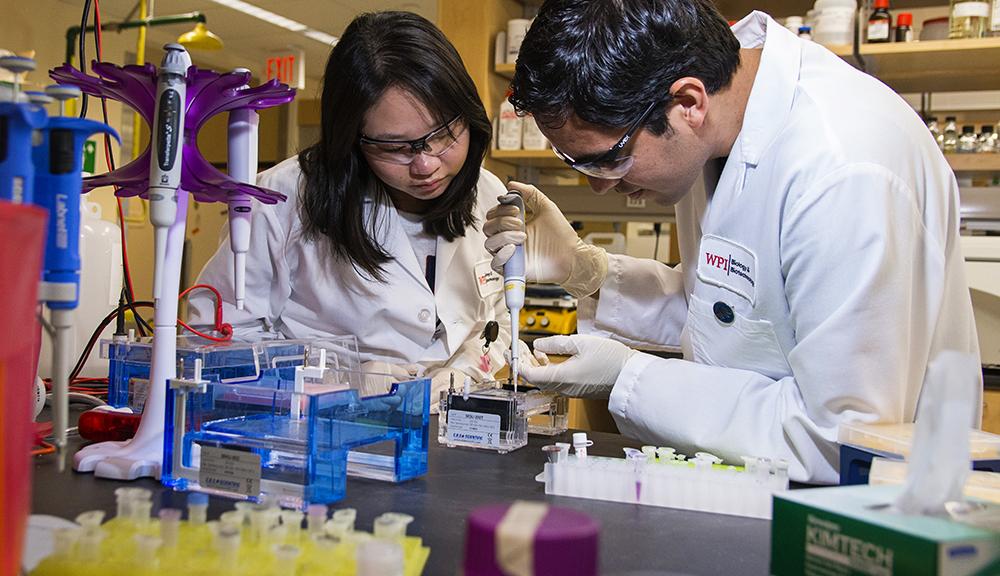
Students in WPI’s BBT program have access to the state-of-the-art labs and multidisciplinary collaborations in the Life Sciences & Bioengineering Center at Gateway Park.

Well-equipped BBT facilities mean you’ll be supported in your research endeavors whether that involves an AAALAC-accredited vivarium with surgical suites, NMR, or a greenhouse.

WPI’s biology and biotechnology graduate degree programs are rigorous yet flexible to provide students with the appropriate backgrounds in both the theory of biology and the practice of biotechnology.

Work in WPI’s biology and biotechnology labs has real-world applications that impacts problems on a human scale.
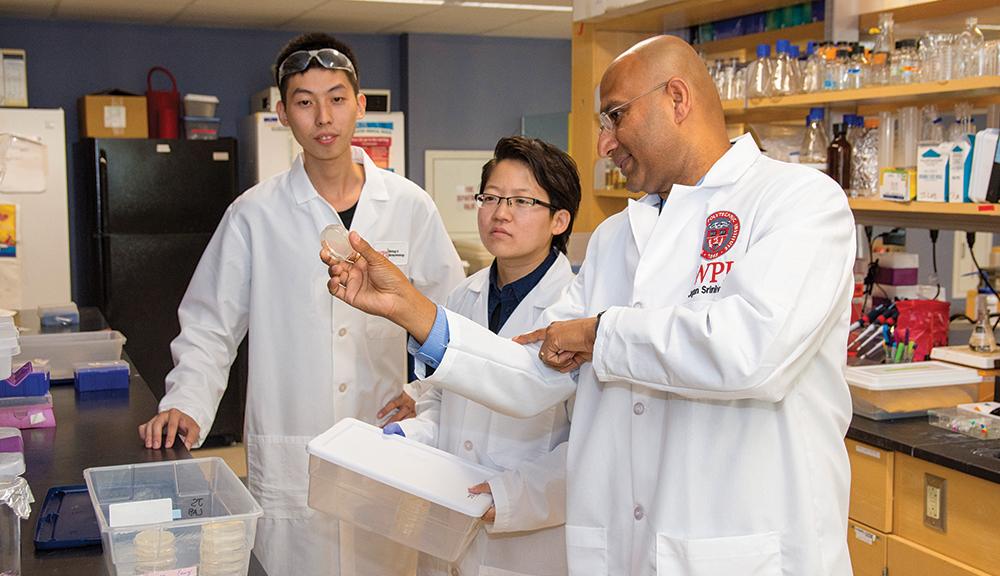
The BBT program is rigorous, flexible, and comprehensive, so students are prepared for whatever the next step in their career path brings.
PhD candidates are encouraged to review the department's faculty pages to identify potential advisors.
You will have access to state-of-the-art equipment in WPI’s Life Sciences and Bioengineering Center, a research complex where an open-plan lab and presence of biotech companies encourage interdisciplinary collaborations. Facilities include an analytical instrumentation core equipped for NMR, Mass Spec, X-Ray Crystal, and qPCR analysis; imaging core with advanced microscopes for point-scanning confocal, spinning disk confocal, and TIRF microscopy; and AAALAC-accredited vivarium.
Faculty Profiles
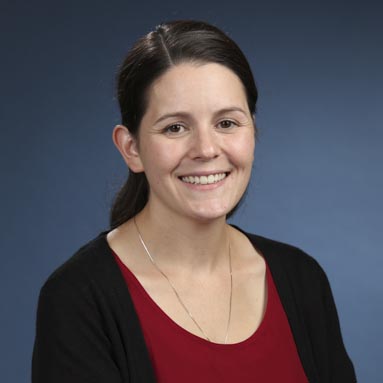
Work in my lab is focused on defining the cellular mechanisms that maintain genome stability in normal cells and understanding how these pathways are corrupted in cancer cells.
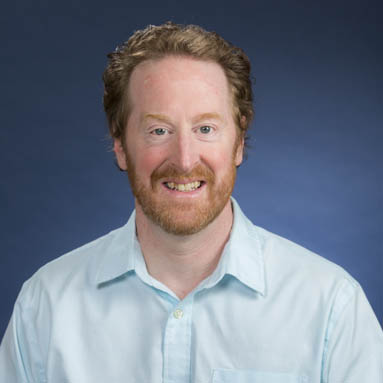
Defining signaling pathways that program cellular diversity is one of the foremost problems in biology and is central to my research interests. In the lab we use molecular, genetic, and biochemical approaches to characterize the function of these pathways and to gain insight into their role in disease. To date, the lab has focused on the Epidermal Growth Factor Receptor network, a principal therapeutic target for a variety of human cancers.
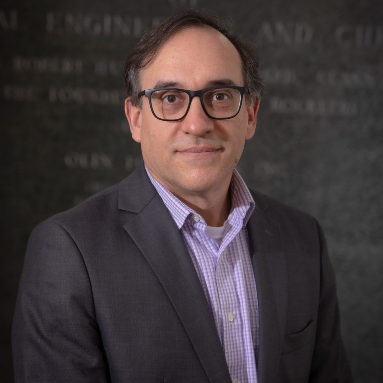
I deeply enjoy teaching, in particular conveying the important roles played by plants. It is a great reward when my students realize that plants are more complex and interesting than they anticipated, and they want to learn more. I enjoy that students at WPI are open about thinking in new ways; this critical thinking is the result of intense project-based learning.
Prof. Weathers is an internationally recognized expert on Artemisia annua and artemisinin, having worked with the plant and its phytochemicals including the antimalarial drug, artemisinin, for >25 years. She is a Fellow of AAAS and SIVB, won many awards, given many national and international presentations, reviews manuscripts for many journals and proposals for many national and international funding agencies. She is an Associate Editor for multiple journals. Her lab was the first to genetically transform A. annua.

Our lab investigates the molecular basis of phenotype switching in human fibroblasts that can be modulated using defined extracellular stimuli. We evaluate the role of oxygen and growth factor FGF2 isoforms independently and in combination in order to identify key molecular mechanisms and pathways, some of which closely mimic mechanisms described in human embryonic stem cells. Extended lifespan of these cells in culture also offers us a model for investigation of molecular mechanism that are regulating cell cycle in the context of both aging and cancer.
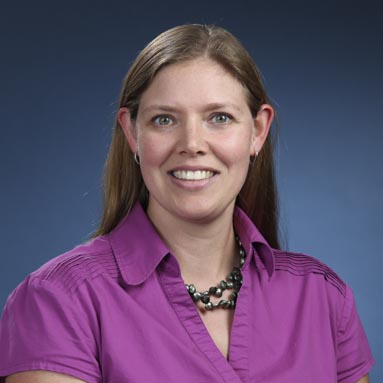
Research in my laboratory addresses questions in the field of evolutionary ecology and environmental biology, and typically combines field work and laboratory studies. Current projects focus on two disciplines.

A member of the WPI faculty since 2004 and chair of the Department of Biology and Biotechnology since 2022, Reeta Rao is a leader in the field of molecular genetics and genomics. Her primary research activities are focused on emerging infectious diseases, specifically understanding and managing fungal diseases. Students and research associates in her laboratory are trained to use a variety of biochemical, molecular-genetic, and genomic tools to study host-microbe interactions to explore fungal virulence strategies and identify novel therapeutics in a high through
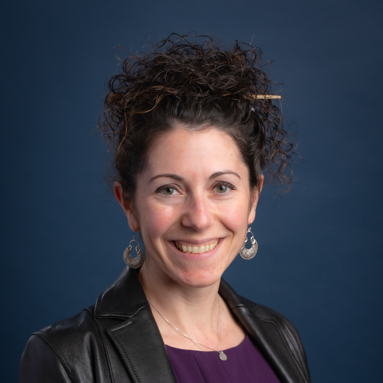
I have a passion for understanding how living systems work, as well as for sharing my love of biology and research with the next generation of scientists and informed citizens.
The central goal of my lab is to understand the regulatory mechanisms that underlie mycobacterial stress tolerance. We combine genetics, genomics, transcriptomics and biochemistry to understand how mycobacteria respond to, and ultimately survive, stressful conditions.
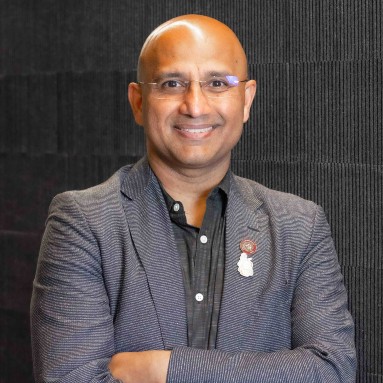
It has been my lifelong dream to become a professor in the field of Biology. Being a faculty member provides a great opportunity to teach and interact with students. Students by nature are highly inquisitive and motivated, and as teachers, we have the responsibility to guide our students to explore and think in new ways. I believe that teaching is a two-way interaction between teachers and students. I come from India and my parents, both of whom were teachers, taught me to strive for excellence in my scholarly pursuits.
- PhD Student
Refer a Friend
Do you have a friend, colleague, or family member who might be interested in Worcester Polytechnic Institute’s (WPI) graduate programs? Click below to tell them about our programs.
Earn a Master’s Degree in Biology & Biotechnology First
Are you interested in making advanced discoveries about living organisms in a robust community of like-minded researchers, but need your master’s to get there? Consider earning a master’s in biology and biotechnology where you’ll participate in cutting-edge laboratory training and gain professional training in areas like experimental design, ethics, and more. Do you prefer advancing a career in the biotech industry from making cross-functional decisions to gaining expertise in bio-production? Our online master’s in biotechnology is a skills-focused program perfect for students who are working professionals looking to study part-time. Maybe you have a strong foundation in computer science and statistics? Consider earning a master’s in bioinformatics and computational biology which dives into leveraging biological data to improve health care.
Get Started with a BS in Biology & Biotechnology or a Minor in a Related Field
If you’re interested in the field but need your initial degree, a bachelor’s in biology & biotechnology is the first step. This degree introduces you to how the theory of biology is put into practice with biotechnology. If your interest lies in gaining enough information to use in a different discipline or practice, WPI has minors that will deliver the skills and knowledge you seek. A minor in biology is an excellent addition to your academic program and will be relevant in many industries including biomechanics, big data, or personalized medicine. Or maybe you’re seeking a global perspective. WPI’s interdisciplinary minor in global public health examines biological, social, political, environmental, and economic influences on the health of diverse and varied populations.
WPI is proud to be the recipient of not one, but two National Science Foundation Research Traineeship programs. The programs provide exceptionally talented graduate students with specialized training and funding assistance to join careers at the forefront of technology and innovation. The programs are for graduate students in research-based master's and doctoral degree programs in STEM. Learn more .
The BioPoint Program for Graduate Students has been designed to complement traditional training in bioscience, digital and engineering fields. Students accepted into one of the home BioPoint programs will have the flexibility to select research advisors and take electives in other departments to broaden their skills. BioPoint curriculum is designed to be individual, interactive, project-focused and diverse, and includes innovative courses, seminars, journal clubs and industrial-based projects. Learn more .
Biotechnology
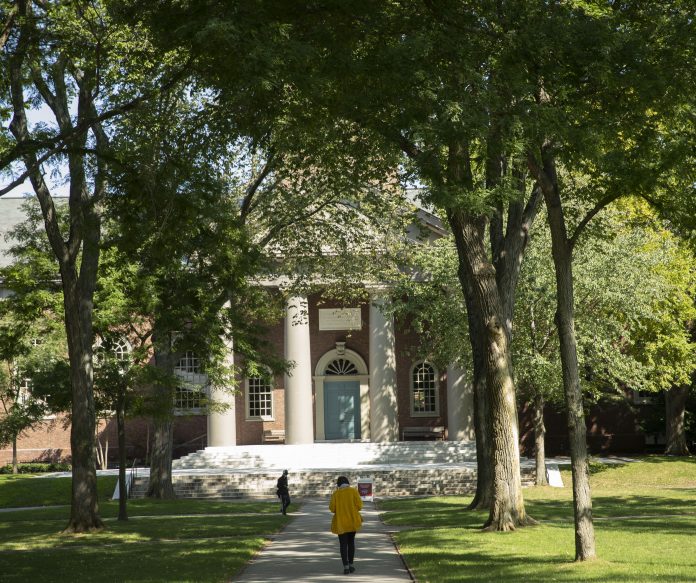
Students enrolled in the Master of Liberal Arts program in Biotechnology will gain insight into the latest biotechnology discoveries and trends, and develop a solid foundation in research and innovation.

Should You Get a Master’s or a PhD in Biotechnology?

Industry Advice Science & Mathematics
The job outlook for biotechnology professionals is very positive, with 2020 salaries averaging between $80,000 and $90,00 per year. As a result, many individuals are pursuing advanced degrees in biotechnology in hopes of acquiring the training and experience needed to land a role in this lucrative field.
Luckily, those with an undergraduate degree have the benefit of tailoring their graduate education by choosing to enroll in either a biotech master’s or a PhD program. Read on to explore how these two programs differ and what the five key aspects you should consider when deciding which is the right fit for you.
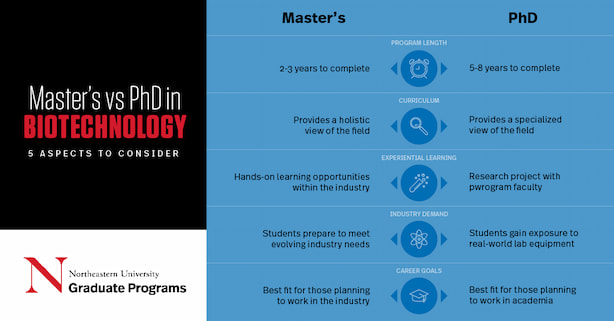
Choosing a Master’s vs. a PhD in Biotechnology: What to Consider
1. your career goals.
Perhaps the most significant question you can ask yourself when picking between a master’s and a PhD is, “What do I intend to do with my degree?”
For example, because PhDs require an extensive time commitment and provide students the chance to explore the academic side of the field, individuals who want to pursue research are best suited for this degree.
“If you want to be an academic, you absolutely have to get a PhD,” says Jared Auclair, director of the biotechnology and bioinformatics programs at Northeastern. Conversely, he explains, “if you want to go work the industry, a master’s is the way to go.”
A master’s degree is designed to transition students seamlessly from the classroom into the workforce. These programs tend to be shorter, and they provide chances for hands-on learning within real-world organizations. In short, they are developed in a way that allows students to begin shaping their careers in biotech before they even graduate.
“Because a master’s degree takes less time schooling-wise, you can go out and work in the industry sooner, get hands-on experience, and then move up in the chain of command,” Auclair says.
Learn More: Industry vs. Academia: Which is Right for You?
PhD candidates considering work in industry (versus academia) are not as easily set up for success. This is because, while a PhD candidate is spending years in a classroom, professionals with master’s degrees are already out in the field collecting valuable real-world experiences that will help prepare them to advance within an organization.
And while there are still some companies that might value a PhD applicant’s extensive study over a master’s degree applicant’s time in the workforce, Auclair explains that, in most cases, a master’s is really all a hiring manager is looking for among applicants.
“In most of the job postings I see…companies are looking for those with master’s [degrees], not PhDs,” he says, noting that there are only a few situations where, in C-level leadership roles specifically, a PhD candidate might have an edge.
2. Curriculum
“A master’s program and a PhD program in biotechnology will have similar coursework,” Auclair says. Both are designed to provide students with an expansive understanding of the field, including the tools, practices, and trends that define it today.
In a PhD program, however, students will have the opportunity to specialize in a specific area of practice within the larger biotechnology field. “A master’s offers a broader depth of training…[whereas] PhDs are trained to do something very specific,” he continues.
As a result, master’s students may end up taking more classes and leaving with a much broader and holistic understanding of the field than their PhD counterparts.
3. Program Length
A master’s program is designed to be completed quickly so that students can explore opportunities within the industry earlier in their careers. At Northeastern, for example, the master’s in biotechnology program can take anywhere from two to three years to complete, depending on whether a student pursues it in a full-time or part-time capacity.
A PhD, on the other hand, requires a much longer time commitment. After completing core classes, PhD students complete a three- to five-year research project with the faculty of their program, effectively delaying their release into the workforce.
4. Experiential Learning Opportunities
The experiential component of a student’s education is perhaps the biggest differentiator in the structures of PhD and master’s programs.
Students who pursue their master’s at Northeastern, for example, have unparalleled opportunities to practice their skills hands-on at organizations in the industry before ever entering the workforce.
“Our master program has a mandatory co-op , which is 12 weeks to six months of experience in the industry,” Auclair says. This paid and credited work provides students with the chance to explore the trends of the industry first-hand, network with leaders in the field, and begin to develop working relationships with organizations they may hope to be employed by after they graduate.
Just as industry experience prepares master’s students to thrive in the field, many PhD programs provide experiential learning opportunities for their students that expose them to the types of research and academia they can expect to pursue post-graduation.
“After you do your mandatory coursework for your PhD, you’re going to do a research project with a faculty,” Auclair says. “And that’s not industry experience, it’s academic research experience, which is completely different.”
This academic research gives students a chance to become comfortable in a lab or research setting, gain exposure to some of the technology and tools they will use in practice, and begin developing working relationships with professors and other university faculty.
5. Demands of the Industry
Some professionals considering an advanced degree do so knowing exactly what they want to do with their careers. For these individuals, the process of deciding between a master’s and a PhD may stop after consideration of their career goals.
However, some individuals embark on advanced education not to fulfill a specific career objective, but to simply pursue their passion for biotechnology. These individuals should think about not only what career opportunities each program might lead to, but which degree will best set them up to meet the current demands of the industry.
For example, the COVID-19 pandemic has created a plethora of lucrative possibilities for those in the biotechnology sector. Between a need for expedited vaccine development, a rethinking of telemedicine, and much more, Auclair notes there will be many new and exciting opportunities for those hoping to get involved.
“With COVID…sciences and new technologies are going to evolve rapidly,” he says. “The master’s degree sets you up to be more nimble and flexible [in order] to adapt to those [changes] and to really have a broader impact.”
Though there are opportunities for PhD holders to carve out a place for themselves in the industry, Auclair explains that the depth and type of training required at their level don’t as easily translate.
“Traditionally a person with a PhD is very specialized in one specific technique or aspect of the sciences, whereas somebody with a master’s is [better] able to adapt to the evolution of where the science is going to go. I’m not saying that PhDs can’t do that, but it’s typically not as easy for them.”
Weighing Your Options
If you’re considering a career in biotechnology, an advanced degree provides a perfect opportunity to gain the training and hands-on experience necessary to thrive within this ever-evolving field.
The Master of Science in Biotechnology at Northeastern, for example, has been designed with the input of industry experts and is constantly evolving to best prepare its students to meet the changing needs of the field.
“Part of my mission is to develop all of our programs in collaboration with industry,” Auclair says. “[We] monitor the trends and evolve and adapt as the trends evolve and adapt so that we’re producing people who are ready to work in the business of today or tomorrow, and not of yesterday.”
Northeastern has also taken steps to create opportunities for students who want both the industry exposure of a master’s degree with the cumulative title of a PhD.
The Experiential PhD is a unique program that allows students to work toward their PhD while simultaneously holding a full-time position within the industry. While this degree can be applied to any field, it’s particularly relevant to master’s degree holders who later realize they want to specialize their knowledge or to pivot their career toward research.
Northeastern’s master’s in biotechnology is designed to effectively complement this degree, as well. The Experiential PhD allows students to build off the holistic understanding of the industry obtained at the master’s level, preventing them from repeating much of the same coursework over again as they would in pursuit of a different science-based PhD.
The way it works, Auclair explains, is that “when you have your master’s…and you’re working at a company, you find a mentor in that company and a mentor at the university, and you [choose and then] work on a project that’s interesting to all three of you.”
This type of industry-applicable PhD is ideal for those who have already spent time working within organizations in the field. It allows you to advance your education while still continuing to function as an employee at your company. “You get all the benefits and the money and the salary and everything, but you’re still getting your PhD and it [only takes] three years,” Auclair says.
Take the Next Step
No matter which program you choose, pursuing an advanced degree in biotechnology is sure to be a positive step toward success in this field. If you’re still struggling to determine which path is right for you, consult with an expert in the field. Whether that person is someone in your network that works in biotech or an enrollment coach at Northeastern, (who are well-versed in Northeastern’s variety of programs), gaining some outside perspective can help you make this important career choice.
Explore the master’s in biotechnology at Northeastern on our program page then download our free e-Book to learn more about how you can advance your career in biotechnology.

Subscribe below to receive future content from the Graduate Programs Blog.
About shayna joubert, related articles.

Compliance Specialists: Who They Are and What They Earn
Science or science fiction the future of personalized medicine.
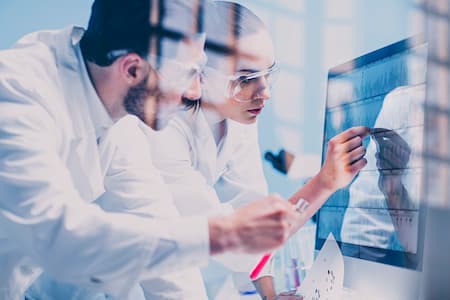
In-Demand Biotechnology Careers Shaping Our Future
Did you know.
The average U.S. bioscience worker earned nearly $99,000 in 2016, 85% greater than the average for the overall private sector. (BIO, 2018)
Master of Science in Biotechnology
An innovative degree for a dynamic industry.
Most Popular:
Tips for taking online classes: 8 strategies for success, public health careers: what can you do with an mph, 7 international business careers that are in high demand, edd vs. phd in education: what’s the difference, 7 must-have skills for data analysts, the benefits of online learning: 8 advantages of online degrees, how to write a statement of purpose for graduate school, the best of our graduate blog—right to your inbox.
Stay up to date on our latest posts and university events. Plus receive relevant career tips and grad school advice.
By providing us with your email, you agree to the terms of our Privacy Policy and Terms of Service.
Keep Reading:

5 Homeland Security Careers for the Future

The Top 3 Job Requirements For a Homeland Security Career

What Are Security Studies?

Should I Go To Grad School: 4 Questions to Consider
Biotechnology PhD
Looking for a Biotechnology PhD at a top research university? Emory University's top-ranked Molecular and Systems Pharmacology (MSP) graduate program prepares students for jobs and careers in pharmacology, pharmaceutical research, toxicology and biotechnology. The program is a unique opportunity for PhD candidates interested in learning how the drugs of today work and how the novel therapeutics of tomorrow can be developed.
Emory University was recently rated by The Scientist magazine as the #1 university in terms of impact in pharmacology and toxicology research. Particular strengths within the MSP graduate school program at Emory include neuropharmacology, cancer biology, AIDS research, cardiovascular pharmacology, toxicology, and chemical biology. Ph.D. training in the Emory MSP program provides students with an ideal preparation for successful careers in the biotechnology and pharmaceutical industries as well as in academic research, teaching, government research, patent law and other disciplines that depend upon knowledge of fundamental pharmacological principles.
We live in a golden age of pharmaceutical research. Each passing year brings the development of exciting new therapeutics in the treatment of cancer, heart disease, AIDS, diabetes, psychiatric disorders, and other diseases. Biochemistry Career. Continued success in this quest to improve human health depends upon fresh ideas, adventurous basic research, and the cutting-edge training of future scientists.
Biotechnology PhD Curriculum
In the first year of the MSP program, PhD candidates get research experience through laboratory rotations and attend classes focused on the fundamental principles of pharmacology, toxicology, biochemistry and cell biology.
What is Pharmacology?
Pharmacology is the science of drugs, and is perhaps the original interdisciplinary science. It has the goals of understanding how drugs work, how drugs are processed in the body, and of using that information to develop new drugs and new drug targets to treat human disease. Knowledge, concepts and experimental approaches are drawn from each of the traditional basic biomedical science disciplines to achieve these goals. Knowledge about drugs interacting with known target molecules and the identification of novel target molecules (Molecular Pharmacology) is combined with information about how effects of drugs on different organs and tissues are integrated to produce a therapeutic or toxic effect (Systems Pharmacology). Therefore, Pharmacology is an appropriate and exciting field of study for students with diverse undergraduate science backgrounds including Chemistry, Biology, Biochemistry, Molecular and Cellular Biology, Physiology, Neuroscience or Psychology.
A Diversity of Careers
The MSP graduate program prepares students for a diversity of careers . A graduate of the MSP program emerges with a broad training in the basic biomedical sciences, encompassing such disciplines as biochemistry, molecular biology, physiology and neuroscience, but also has training and expertise in the specialized principles and approaches of Pharmacology, This is a combination that is increasingly sought after by the pharmaceutical, biotechnology and government sectors, as well as being excellent preparation for an academic career. The Program also offers a specialization in Toxicology , which focuses on the adverse effects of drugs and chemicals. The Program additionally participates in a Chemistry-Biology Interface program, providing select MSP students the opportunity to obtain concomitant training and expertise in aspects of Chemistry that are particularly relevant to Pharmacology and drug development. Students choose their dissertation mentors from more than 40 internationally-recognized MSP faculty in 15 different academic departments.
Research Foci
- Drug Development and Molecular Therapeutics
- Cell Growth Control. Cancer Biology and Cancer Pharmacology
- Cell Surface Receptors and Intracellular Signaling
- Cardiovascular Pharmacology
- Substance Abuse and Behavioral Pharmacology
- Cell and Developmental Biology
- Metabolism and Molecular Toxicology
- Neuroscience and Neuropharmacology
- Regulation of Gene Expression
Ph.D. Program
The training for a Ph.D. in Biology is focused on helping students achieve their goals of being a successful research scientist and teacher, at the highest level. Students work closely with an established advisor and meet regularly with a committee of faculty members to facilitate their progress. The Biology Ph.D. program is part of the larger Biosciences community at Stanford, which includes doctorate programs in the basic science departments at Stanford Medical School.
There are two tracks within the Biology Ph.D. program:
- Cell, Molecular and Organismal Biology
- Ecology and Evolution
(Previously a part of the Department of Biology Hopkins Marine Station is now a part of the Oceans Department within Stanford Doerr School of Sustainability )
All tracks are focused on excellence in research and teaching in their respective areas; where there are differences between the tracks, they are indicated in the links below.
Requirements & Forms
Dissertation defense, cellular and molecular biology training program, stanford biology ph.d. preview program, career development resources.
Biotechnology Graduate Programs in the Boston Area
1-6 of 6 results
Harvard John A. Paulson School of Engineering and Applied Sciences
- Cambridge, MA ·
- Harvard University ·
- Graduate School
Harvard University ,
Graduate School ,
CAMBRIDGE, MA ,
Tufts University School of Medicine
- Boston, MA ·
- Tufts University ·
- · Rating 4.84 out of 5 25 reviews
Blue checkmark.
Tufts University ,
BOSTON, MA ,
25 Niche users give it an average review of 4.8 stars.
Featured Review: Doctoral Student says I am just starting but have looked through some modules. It seems like it is going to be a great experience and I have visited the campuses a couple of times. .
Read 25 reviews.
Graduate School of Arts & Sciences - Boston University
- Boston University ·
Boston University ,
Bentley University McCallum Graduate School of Business
- Graduate School ·
- WALTHAM, MA
- · Rating 4.71 out of 5 21
Sawyer Business School
- Suffolk University ·
Merrimack College
- NORTH ANDOVER, MA
- · Rating 4.38 out of 5 39
Brandeis University Graduate School of Arts and Sciences
- Waltham, MA ·
- Brandeis University ·
Brandeis University ,
WALTHAM, MA ,
College of Science, Technology, Engineering and Mathematics - Framingham State University
- Framingham, MA ·
- Framingham State University ·
Framingham State University ,
FRAMINGHAM, MA ,
Northeastern University Lifelong Learning Network
- Find college scholarships
Graduate School of Arts and Social Sciences
- Lesley University ·
- CAMBRIDGE, MA
- · Rating 4.75 out of 5 4
Suffolk University
- · Rating 4.56 out of 5 16
- FRAMINGHAM, MA
Showing results 1 through 6 of 6
- Costs, Scholarships & Aid
- Campus Life
- Faculty & Staff
- Family & Visitors
- DFW Community
- Galaxy Login
- Academic Calendar
- Human Resources
- Accessibility
Master of Science in Biotechnology
Program description.
Taught by top-tier faculty at the University of Texas at Dallas, the Master of Science in Biotechnology degree program prepares students for careers in biotechnology and biomedicine and helps working professionals develop new advanced skillsets and enhance their career opportunities.
The Biotechnology master’s program is designed so that students with a wide variety of academic backgrounds can succeed in core courses, take electives in specialized areas and subfields, and tailor the degree program to fit their needs, interests and career aspirations. Designed by faculty in the School of Natural Sciences and Mathematics, the Biotechnology curriculum encourages the development of cross-disciplinary knowledge, allowing students to develop additional expertise in fields such as:
- Molecular and Cell Biology
- Engineering and Computer Science
- Health Care
- Management and Business Administration
- Science Education
The field of biotechnology has experienced rapid growth in recent years as scientists and researchers, corporations and governments develop cutting-edge bioanalytical tools and techniques and as the decoding of the human genome continues to usher in new advances in scientific knowledge and technological innovation. Graduates of the Biotechnology program will gain an advanced knowledge of the field and develop the experience and skillsets that will help them succeed in academic, corporate or governmental careers.
The Biotechnology master’s program ensures that students gain a broad understanding of biotechnology and related subfields, apply their knowledge and analytical skills to create effective and novel solutions to practical problems and communicate and work effectively in collaborative environments.
Other benefits include:
- World-Class Faculty : The program is led by faculty of the School of Natural Sciences and Mathematics who are widely cited experts in their respective fields.
- Comprehensive Curriculum : Courses in the Biotechnology master’s program will introduce students to new ideas, technologies, and competencies while also teaching them the skills they’ll need to thrive in competitive, ever-changing industries.
- Lab Experience : Lab work will introduce students to state-of-the-art research techniques used to understand the molecular mechanisms of biological processes such as gene expression, protein structure and function, carcinogenesis, neurodegeneration, bacterial pathogenicity and symbioses, metabolism and signaling networks.
- Facilities : A cluster of buildings and research labs on the northwest side of campus comprise the over 300,000-square-foot space where students can explore the sciences including the famous Natural Sciences and Research Lab – the “mermaid building” and the Sciences Building. Opened in 2020, the 186,000-square-foot Sciences Building is home to state-of-the-art labs for advanced research in mathematical, biological and physical sciences.
- Location : Situated in the greater Dallas region—recently rated by Forbes magazine as the #1 “Best City for Jobs”—UT Dallas provides students with easy access to employers and internship opportunities, not to mention a large and supportive alumni population.
Career Opportunities
Graduates of the Biotechnology master’s program have gone on to pursue professional careers in many different fields. Recent graduates have found jobs such as:
- Academic or industrial scientists and researchers
- Quality control inspectors and analysts
- College professors and teachers
- Lab technicians
- Healthcare professionals
The NSM Career Success Center is an important resource for students pursuing STEM and healthcare careers. Career professionals are available to provide strategies for mastering job interviews, writing professional cover letters and resumes and connecting with campus recruiters, among other services.
Marketable Skills
Review the marketable skills for this academic program.
Application Deadlines and Requirements
Please take note of all application deadlines and visit the Apply Now webpage to begin the application process. See the Department of Biological Sciences graduate programs website for additional information. Fall admission only.
Applicants to the Biotechnology master’s degree program should have:
- A bachelor’s degree or its equivalent. All majors are considered, but those with laboratory science, mathematics, computer science, or engineering degrees are particularly encouraged to apply. In general, students will not be admitted to the Biotechnology program if they require more than two courses in order to be ready to take the program’s core courses.
- A grade point average (GPA) of at least 3.0 on a 4.0 scale.
- Test Scores: A GRE score is not required. Additional standards may apply to applicants requesting Teaching Assistantships.
- International applicants must submit a TOEFL score of at least 80 on the internet-based test. Scores must be less than two years old. See the Graduate Catalog for additional information regarding English proficiency requirements for international applicants.
Contact Information
For additional information or inquiries, please contact [email protected] or [email protected] .
School of Natural Sciences and Mathematics The University of Texas at Dallas 800 W. Campbell Rd. Richardson, TX 75080-3021
nsm.utdallas.edu/
Request More Information
Contact Email
We have received your request for more information, and thank you for your interest! We are excited to get to know you and for you to explore UT Dallas. You’ll begin receiving emails and information about our beautiful campus, excellent academic programs and admission processes. If you have any questions, email [email protected].
The University of Texas at Dallas respects your right to privacy . By submitting this form, you consent to receive emails and calls from a representative of the University.
* Required Field
Request Info
- Admissions Overview
- Visit UMass Boston
- Financial Aid
- First-Year Students
- Transfer Students
- Graduate Students
- International Students
- Academics Overview
- Majors & Programs
- Online Learning
- Colleges & Schools
- Academic Calendar
- Healey Library
- Student Equity, Access & Success
- Global Programs
- Study Abroad
- Fellowships
- Campus Life Overview
- Student Groups & Activities
- Housing & Dining
- Health & Wellness
- Diversity & Inclusion
- Safety & Security
- Orientation & New Students
- Research Overview
- Community-Driven Research
- Recognizing Excellence
- Student Research
- Centers & Institutes
- Core Facilities
- Research & Sponsored Programs
- About Overview
- Leadership & Administration
- Mission & Vision
- Facts & Figures
- Accreditation & Rankings
- History of UMass Boston
- Student Consumer Information
- Athletics Overview
- Recreation at UMass Boston
- Current Students
- Parents & Families
- Faculty & Staff
UMass Boston
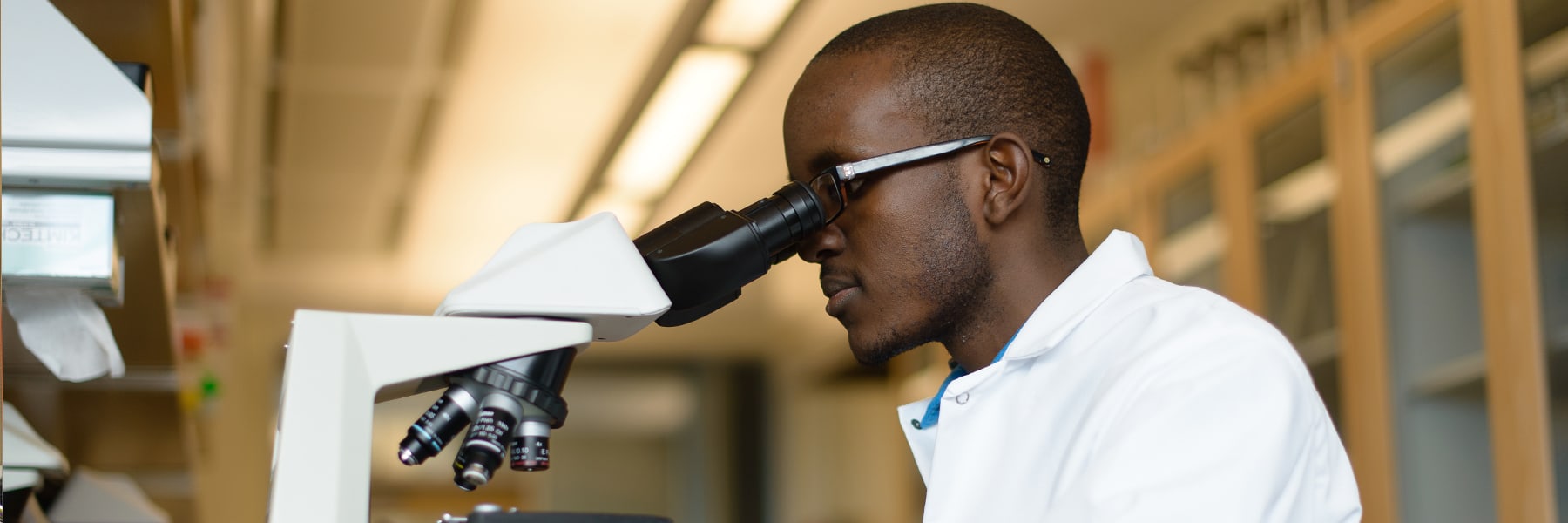
- Biomedical Engineering & Biotechnology PhD
Become part of a nationally recognized PhD program at the intersection of biology and engineering.
UMass Boston's Bioinformatics, Biomedical Engineering, and Translational Biology (BMEBT) PhD program will bring you on a transformative journey of scientific inquiry and innovation. This cutting-edge program offers a multidisciplinary and research-focused curriculum, empowering students to become leaders in the rapidly evolving fields of bioinformatics, biomedical engineering, and translational biology.
In this program, you will:
- Develop advanced expertise in bioinformatics, biomedical engineering, and translational biology, gaining a comprehensive understanding of the intersection between biology, data science, and engineering.
- Acquire cutting-edge research skills, including computational biology, data analysis, genomics, and advanced biomedical techniques, enabling you to conduct groundbreaking research that bridges the gap between basic science and clinical applications.
- Cultivate critical thinking, problem-solving, and collaboration skills, preparing you to address complex biological and medical challenges, communicate scientific findings effectively, and lead transformative projects in academia, industry, and healthcare.
Career Possibilities
Work in research institutions or biotechnology companies, analyzing large biological datasets. Contribute to the development of innovative medical technologies or bridge the gap between basic research and clinical applications, translating scientific discoveries into practical solutions. These are just a few of the possibilities.
Become a(n):
- Bioinformatics Scientist
- Biomechanical Engineer
- Computational Biologist
- Translational Researcher
- Genomic Data Scientist
Start Your Application
Plan Your Education
How to apply.
Applicants must meet general graduate admission requirements in addition to the following program-specific requirements:
- Applicants should have a background in life science, physical science, or engineering. All applicants must have taken a full year (two semesters or three quarters sequence) of calculus.
Individuals applying to this program should apply to one of the four participating campuses.
Deadlines & Cost
Deadlines: January 2 (priority deadline for funding consideration) and March 20 (final) for fall; October 1 (priority deadline) or November 1 (final deadline) for spring
Application Fee: The nonrefundable application fee is $75. UMass Boston alumni and current students that plan to complete degree requirements prior to graduate enrollment can submit the application without paying the application fee.
Program Cost Information: Bursar's website
Core Courses (16 Credits)
Complete six courses from below.
One course must be taken in each area.
Introduction to Biomedical Engineering and Biotechnology
- BIOL 625 - Genomics and Biotechnology 3 Credit(s)
- BIOL 697 - Special Topics in Biology 1-6 Credit(s) Instrumentation and Laboratory Experience
- BIOL 899 - Dissertation Research 1-99 Credit(s) Applied Math for Life Sciences or Advanced Numerical Methods
- BIOL 384L Game Theory, Evolution and Ecology 3 Credit(s) (see undergraduate catalog)
- BIOL 607 - An Introduction to Computational Data Analysis for Biology 3 Credit(s)
- ENVSCI 611 - Applied Statistics 3 Credit(s)
- MATH 303 Introduction to Mathematical Biology 3 Credit(s) (see undergraduate catalog)
- MATH 384L Game Theory, Evolution and Ecology 3 Credit(s) (see undergraduate catalog)
- BIOL 691 - Seminar in Developmental Biology 3 Credit(s) Bioethics
- BIOL 650 - Scientific Communication 3 Credit(s) (1/3 of this course or 1 credit will apply to this requirement; the remainder is applied to the doctoral seminar requirement below) Advanced Cell and Molecular Biology
- BIOL 612 - Advanced Cell Biology 3 Credit(s)
- BIOL 676 - Advanced Molecular Biology Lecture 3 Credit(s)
Specialization Courses (12 Credits)
Complete four courses chosen and approved by the dissertation committee.
Project/Directed Study (3 Credits)
The credits for this can be embedded in existing coursework, but the spirit of this requirement is that students must be involved in some multi-investigator collaborative project and the student should present this project at some national meetings or equivalent venue. Documentation of this presentation must be presented to the GPD for this requirement to be fulfilled.
- BIOL 672 - Directed Readings in Biology 1-3 Credit(s) or
- BIOL 899 - Dissertation Research 1-99 Credit(s)
Doctoral Seminar (2 Credits)
Doctoral students will present research in progress. The seminar will emphasize not only research but also communication and writing.
- BIOL 650 - Scientific Communication 3 Credit(s) (2/3 of this course or 2 credits will apply to this requirement; the remainder is applied to the Bioethics requirement above).
Research (30 Credits)
Complete at least 30 credits of doctoral research from below.
Graduation Criteria
Complete 63 credits from 12 courses including six core courses, four specialization courses, one project/directed study course, one doctoral seminar, and 30 credits of research.
Doctoral candidacy: Students must pass written and oral qualifying examinations before undertaking research at the doctoral level. Dissertation: Candidates must compose and defend a dissertation based on original research. Departmental presentation: Within two semesters after the advance to candidacy, the student will present a seminar, based on his/her work in progress, to the entire department. Teaching: Students are required to participate in the teaching program as teaching assistants for at least two semesters.
Minimum grade: No more than one course with a grade of C may be applied toward the program. Statute of limitations: Eight years.
Graduate Program Director Linda Huang Linda.Huang [at] umb.edu (617) 287-6674
Alexa MacPherson Alexa.MacPherson [at] umb.edu (617) 287-6603
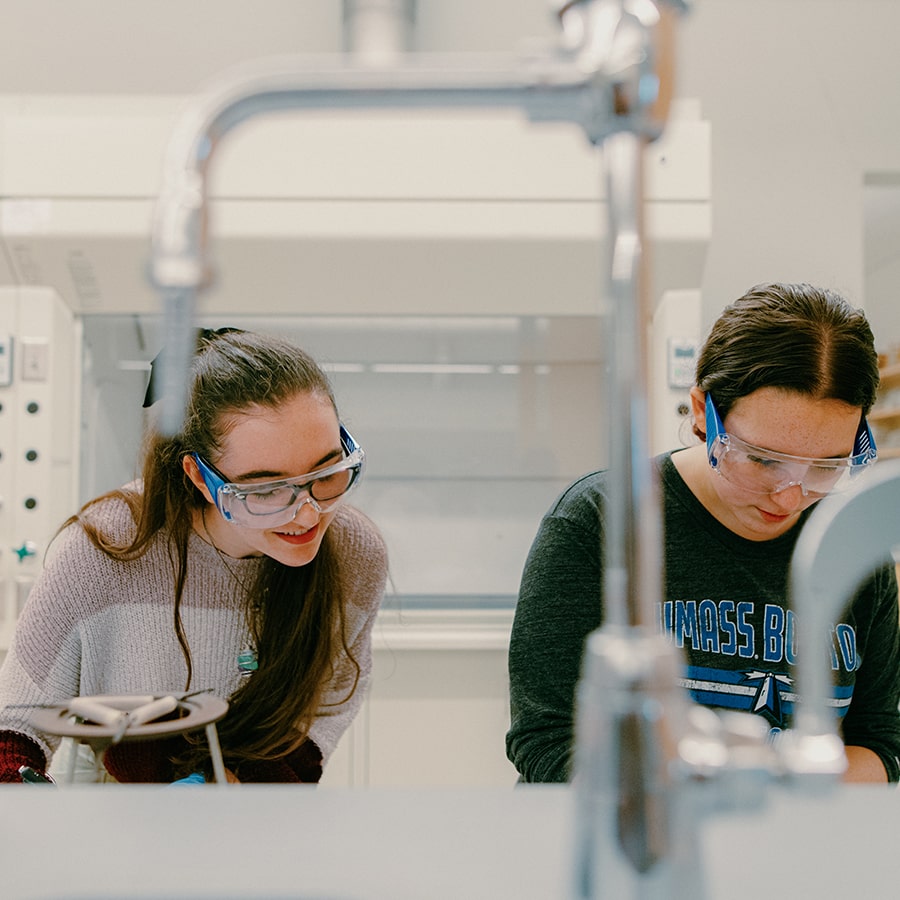
Learn more about UMass Boston's Biology department, our research, and our faculty.
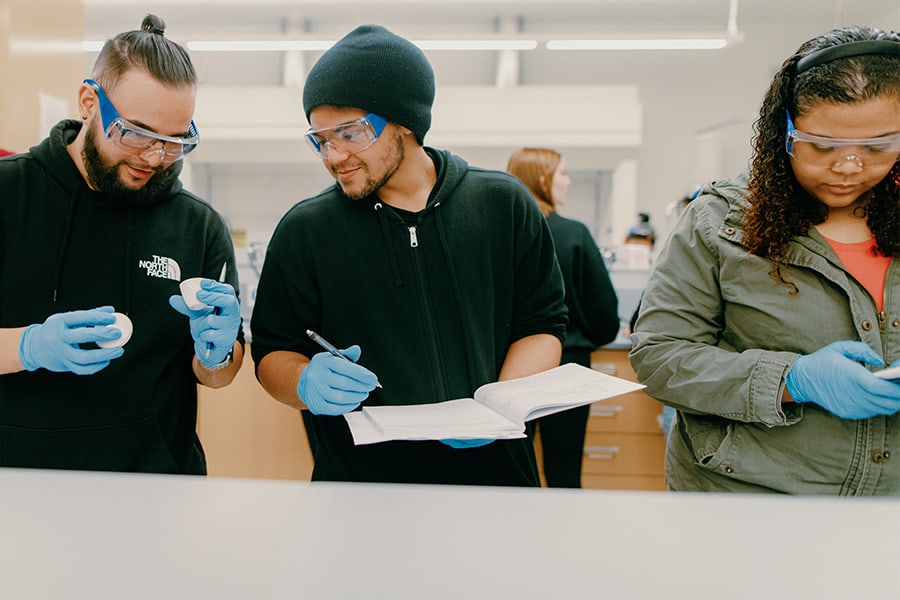
College of Science & Mathematics
Learn more about the faculty, research, and programs that make up our College of Science and Mathematics.
PhD in Biotechnology
Biotechnology, phd: 1st year.
Other requirements for the PhD program include:
- Additional electives that emphasize individual research themes
- 3.25 GPA in core classes (listed above)
- Oral critique of a current research article
- Research progress report with oral presentation
- 1-3 teaching assistant assignments
- Attendance and participation in the Departmental Seminar Series
- Research committee meetings and thesis defense
** Additional program details are provided in the Graduate Handbook

Research opportunities
Biotechnology.
Expertise of research area biological sciences; biomolecules; biopharmaceuticals; Biotechnology; celluar biology; molecular biology
Biotechnology is a broad discipline in which biological processes, organisms, cells or cellular components are exploited to develop new technologies. New tools and products developed using these systems are useful in research, agriculture, industrial processes, and the clinic.
<p>Within the research area of Biotechnology we have two research themes:</p> <h3><a href="https://biologicalsciences.leeds.ac.uk/biotechnology/doc/biotechnology-themes/page/1">Engineering of Biomolecules </a></h3> <p>Converting our understanding of fundamental principles of biology and biochemistry into useful tools, devices, therapies and diagnostics that ultimately benefit human life.</p> <h3><a href="https://biologicalsciences.leeds.ac.uk/biotechnology/doc/biotechnology-themes/page/2">Developing Biopharmaceuticals </a></h3> <p>Work in this area ranges from the development of precision drugs, understanding protein folds, the application of Affimer reagents and the study of viruses.</p>
<p>If you are interested in a product in this research area please search for our research opportunities. </p>
<p>For further information please contact the Graduate School Office<br /> e: <a href="mailto:[email protected]">[email protected]</a>, t: +44 (0)113 343 8186</p>
Enter a Search Term
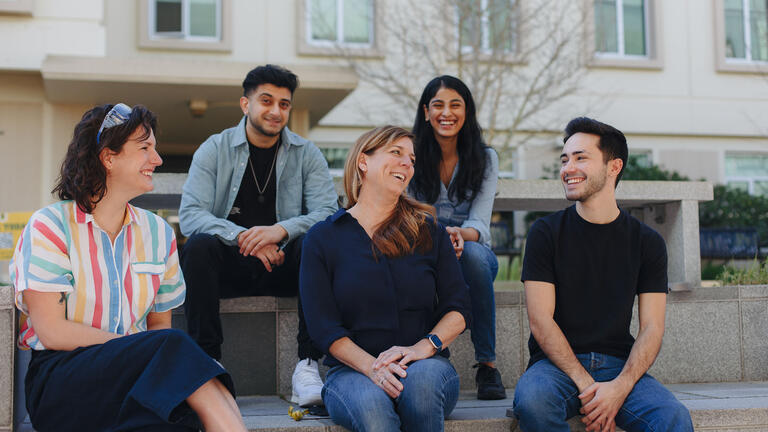
Biotechnology, PSM
- Program Overview
- Career Outcomes
- Internships
- Class Profile
- Advisory Board
- Financing Your Education
- How to Apply
Over the past 10+ years of our program, we have had a 96%+ full time employment rate in biotechnology as of months after graduation.
(This number excludes occasional students who elect to pursue a biotech related Ph.D after our program– generally 0-1 per year.)
Our students get positions at biotechnology companies that can be research-based (Research Associate, Associate Scientist) or non-research-based (regulatory affairs, clinical, project management, etc.). Companies range from small start-ups to multinational pharmaceutical companies. You can get a more detailed look at our alumni by clicking on the link below:
https://www.linkedin.com/school/university-of-san-francisco/people/?facetFieldOfStudy=100674
Check in each profile that the person in question is a graduate of our program (as opposed to entering biotech through other means). As you’ll see, our graduates get quality biotechnology positions and advance quickly in the field.
PSM programs are Master’s degree programs that include a mixture of science and entrepreneurship-based courses. Students in our PSM in Biotechnology program will take about ⅔ science courses and ⅓ bioentrepreneurship courses.
Our program is aimed at students who are hoping to enter the biotechnology field or to advance their careers in the biotechnology field. Almost all of our students will be working at biotechnology companies after graduation.
We are a fully in-person program with classes located at our beautiful campus in the heart of San Francisco. The San Francisco Bay Area is home to thousands of biotechnology companies–arguably it is the most important biotechnology hub in the world.
Yes, students typically take classes three evenings a week. This makes our students very desirable for biotech companies wishing to hire student interns, as it allows interns to be present during the working day. By facilitating internships, our evening classes allow students to build practical job experience and help defray the expense of the Masters.
No, instead of conducting thesis research with a specific faculty member, students will work in internships/jobs at companies.
Almost all of our students complete the program in 2 years (four semesters).
Our program is 12 years old. We now have hundreds of alumni students working at biotech companies in the San Francisco Bay Area and across the country.
In some years we open spring admissions - check our website for details. This will depend on the size of our incoming fall cohort as we keep our class sizes small.
In most cases no. We want you to receive the full training from classes in our program at USF.
Application Requirements
At a minimum, applicants must have completed two semesters of undergraduate Biology and two semesters of undergraduate Chemistry. Additional science courses are preferred.
We will accept three-year bachelor's degrees from international applicants for admission review.
We will review your application thoroughly, including the transcript(s), personal statement, letters of recommendation, and resume, to make the final decision. If your CGPA is below 3.0 out of 4.0, the GRE is recommended.
The GRE test is optional. Applicants are not required to submit standardized testing to be considered for admission. Applicants who have taken the GRE general exam can choose to submit their scores, and their GRE scores will be considered as a part of their whole application. GRE is highly recommended if CGPA is below 3.0 out of 4.0.
No. While we offer merit-based scholarships at the time of admission, these scholarships only cover a portion of the overall tuition cost.
Please visit https://myusf.usfca.edu/billing-tuition/tuition-fees#cas for more information.
MOOCs cannot substitute for the prerequisite courses. If you haven’t taken any biology or chemistry courses, we recommend taking prerequisite college-level courses at another institution or you can email [email protected] for additional consultation.
No. Some of our students will enter our program straight after completing their undergraduate degree with no industry work experience. Having work or research experience can make your application stronger though.
As an international applicant who needs an F1 visa, you will be asked to upload proof of funding documents (bank statements, bank letters, and/or scholarship letters) for the first year of studies. Proof of funds is required in order for your application to be reviewed for admission. For more information, please visit:
https://www.usfca.edu/admission/graduate/international-graduate/certificate-of-finance#proof-of-funding
No, you do not need a supervisor to complete the application.
Yes, you can submit unofficial transcripts for your application. You will not need to submit your official transcripts until the start of your first semester in the program.
Admission Process
Yes. For details on the waiver policy for TOEFL or IELTS scores, please see the International Students page (look for the "Exception Policy" listed under "Test Scores"). For questions, please contact the Office of Graduate Admission for the College of Arts and Sciences.
Yes, you can send a recommendation letter from a supervisor (but not a colleague). However, having at least one recommendation letter from a professor from your undergraduate program is preferred.
Our priority application deadline for fall admission is February 15. The final application deadline is April 15.
Yes, we will consider applications until the program is full and maintain a waitlist until mid-summer. Please note that international applicants should apply early so that there is ample time for the visa application process.
You can expect 3-4 weeks to get an early decision from us after you complete the application. An admission interview (over Zoom) may be required upon the admission committee’s decision.
Generally, you will need to place a deposit within three weeks of receiving your acceptance to the program. If you fail to deposit by this time, your offer of admission may be cancelled.
Internship & Career Outcomes
You are not assigned an internship position but rather given all of the tools to get a biotech internship. We work with many San Francisco Bay Area employers who have been hired by our program in the past. We connect them with our current students when they are looking for new interns. Mentoring in career and job hunting is a formal part of our program, including a required 1 unit course.
In general, no. Occasionally, a student will work as a paid student worker at USF, but this is usually done by internship F-1 visa students who cannot work off-campus during their first year of study. For students who are allowed to work off campus, taking on a biotech company internship is almost always the preferred option for our students. In virtually all cases, these internships are paid, and they are usually more lucrative than on campus positions.
Over the past 10+ years of our program, we have had a 96%+ full time employment rate in biotechnology as of months after graduation. This number excludes occasional students who elect to pursue a biotech related Ph.D after our program– generally 0-1 per year.
Yes! Typically, 20-30% of our incoming students already have biotechnology positions. You can take an elective course in place of the internship requirement or take on a new project/role at your existing company for the capstone internship.
As an international student on an F-1 visa, you can work off-campus for pay (usually at a biotechnology company) starting in the summer after your first two semesters at USF. You would work while on your CPT status - our ISSS office will help with your CPT application.
- MD-PhD Program >
- MD-PhD News >
UB Awards 320 Biomedical Science Degrees; 35 Earn PhDs
Commencement 2024.

Lauryn Alexandria Scott, a biomedical sciences undergraduate student, is all smiles as she walks across the stage during the May 19 biomedical sciences commencement ceremony.
By Dirk Hoffman
Published May 29, 2024
Thirty-five doctoral, 76 master’s and 209 baccalaureate candidates were eligible to receive degrees in biomedical science fields during the May commencement ceremony.
2024 Commencement Video

Related Links
- Commencement Program
- Full Gallery of Biomedical Sciences Commencement Photos
Six graduate students and nine senior undergraduates were singled out for special honors, including four graduates who received a Chancellor’s Award, the highest State University of New York undergraduate honor.
Graduates completed work in 14 departments or programs of the Jacobs School of Medicine and Biomedical Sciences :
- biochemistry
- biomedical informatics
- biomedical sciences
- biotechnical and clinical laboratory sciences
- genetics, genomics and bioinformatics
- medical physics
- microbiology and immunology
- natural sciences interdisciplinary
- neuroscience
- nuclear medicine technology
- pathology and anatomical sciences
- pharmacology and toxicology
- physiology and biophysics
- structural biology
Graduates also completed the following programs offered in alliance with the Roswell Park Comprehensive Cancer Center Graduate Division : cancer pathology and prevention, cancer sciences, immunology, and molecular pharmacology and cancer therapeutics.
Fifteen of the doctoral degrees and eight of the master’s degrees were awarded in Roswell Park’s programs.

Allison Brashear, MD, MBA, UB’s vice president for health sciences and dean of the Jacobs School, congratulates the Class of 2024.
Lessons Learned From Recent Solar Eclipse
Allison Brashear, MD, MBA , UB’s vice president for health sciences and dean of the Jacobs School, welcomed attendees to the May 19 event at UB’s Center for the Arts and addressed the graduates.
“It fills my heart with immense joy to see all of you gathered here today,” she said.
“In the face of the challenges that have beset us in recent times, these bright scholars and scientists have exhibited extraordinary resilience, determination and perseverance in their academic endeavors. I am confident that these qualities will serve as guiding lights as they embark upon their journeys in their respective fields.”
She noted that biomedical science is one of the broadest areas of medical science and underpins much of modern medicine.
“Biomedical scientists are at the heart of multidisciplinary teams in health care. Biomedical research looks at ways to prevent and treat disease,” Brashear said. “Your innovative approaches and unwavering dedication will continue to push the boundaries of scientific discoveries and technology, leading to a brighter and healthier future for all of us.”
In his address, UB President Satish K. Tripathi, PhD, told the graduates they could learn a lot from the recent solar eclipse that generated excitement in Western New York in early April.
“Allow me to share three tips of advice gathered from the path of totality,” he quipped.
“Reconnect with the natural world, as often as possible. Instead of taking selfies, take time for self-reflection,” he said. “When you give wide berth to the stressors of modern life, you allow yourself space to find both your place in the world and your responsibility to it.”
“Do not regret circumstances beyond your control,” Tripathi added, noting the sunny days leading up to the eclipse, but the extreme cloudiness that persisted over much of WNY on April 8, the day of the event. “Notwithstanding the uncooperative weather, we all experienced a breathtaking moment. Magnify your disappointments and you miss occasions for learning, enrichment and wonder.”
“Lastly, use your expertise for the greater good. When you apply what you have learned for others’ benefit, you put your UB education to its highest purpose,” he said.

Doctoral graduate Haley Victoria Hobble won two separate graduate awards for her research and dissertation. She is flanked by Mark R. O’Brian, PhD, left, and John C. Panepinto, PhD.
Outstanding Graduates Recognized
Biochemistry graduate student research achievement award.
Doctoral graduate Haley Victoria Hobble was honored for research that received national or international recognition and for being selected to give an oral presentation at a major national or international meeting.
Dissertation: “Intrafamily Heterooligomerization of the N-Terminal Methyltransferase METTL11A”
Mentor: Christine E. Schaner-Tooley, PhD , associate professor of biochemistry
Roswell Park Graduate Division Award for Excellence in Research
Doctoral graduate Abigail Cornwell was the recipient of this award for outstanding research for her dissertation titled “Impact of Benzodiazepines on the Pancreatic Ductal Adenocarcinoma Tumor Microenvironment”
Mentor: Michael Feigin, PhD, associate professor of oncology, Roswell Park Comprehensive Cancer Center
The Dean’s Award for Outstanding Dissertation Research
Doctoral graduate Haley Victoria Hobble was the winner of this award that recognizes demonstrated excellence in research.
She was honored for her dissertation: “Intrafamily Heterooligomerization of the N-Terminal Methyltransferase METTL11A”
Mentor: Christine E. Schaner-Tooley, PhD , associate professor of biochemistry
The Microbiology and Immunology Award for Excellence in Dissertation Research in Memory of Dr. Murray W. Stinson
Doctoral graduate Katherine Shannon Wackowski was honored for her dissertation “Cooperation of RESC Proteins in Trypanosome RNA Editing and Holoenzyme Dynamics”
Mentor: Laurie K. Read, PhD , professor of microbiology and immunology
Dennis Higgins Award for PhD Dissertation Research in Pharmacology and Toxicology
Doctoral graduate Shirley Xu was honored for her dissertation “Troponin-Mediated Autoimmune Mechanisms of Immune Checkpoint Inhibitor-Induced Myocarditis”
Mentor: Umesh Sharma, MD, PhD , associate professor of medicine
Bishop Neuroscience Thesis Award
Doctoral graduate Richard Adam Seidman was honored for his dissertation “Oscillatory Calcium Mediated Regulation of Human Oligodendrocyte Progenitor Cells”
Mentor: Fraser J. Sim, PhD , professor of pharmacology and toxicology
The Structural Biology Award for Excellence in Dissertation Research in Memory of Dr. Robert H. Blessing
Doctoral graduate Nicholas David Clark was honored for his dissertation “Structure/Function Studies of Virulence Factors from Periodontal Pathogens and Membrane Sphingolipid Hydroxylases”
Mentor: Michael G. Malkowski, PhD , professor and chair of structural biology

The four undergraduate SUNY Chancellor’s Award winners, from left, Bryan R. Renzoni, Lea Kyle, Rachel Esther Sanyu and Sarah Bukhari, along with Jennifer A. Surtees, PhD.
SUNY Chancellor’s Award for Student Excellence
Sarah Bukhari, Lea Kyle, Bryan R. Renzoni and Rachel Esther Sanyu were recognized with the SUNY Chancellor’s Award. It recognizes students for their integration of academic excellence with other aspects of their lives that may include leadership, athletics, community service, creative and performing arts, entrepreneurship or career achievement.
Bukhari graduates with a bachelor’s degrees in biochemistry. She is an undergraduate researcher in the lab of Jennifer A. Surtees, PhD , professor of biochemistry . Bukhari secured funding from the Experiential Learning Network and a Mentored Research micro-credential.
Beyond academics, the Grand Island, New York, native is deeply involved in community engagement, serving as both the volunteer coordinator and vice president of the largest student-run pre-health organization, the Association of Pre-Medical Students, and was awarded a Community Engagement micro-credential and gathering 500+ volunteer hours.
With dual roles as dance coach and social media coordinator for the Pakistani Student Association, she fosters a network of communities to embrace diversity and celebrate traditions.
A native of Martville, New York, Kyle is a University Honors College Scholar who graduates with a Bachelor of Science degree in biochemistry with minors in both physics and public health.
She has been a Student Association, Recreation Department, Student Engagement and TASS Center employee. She also is the current president of UB Rotaract, a volunteering club on campus.
Kyle is also a student researcher in the Department of Microbiology and Immunology , Elizabeth A. Wohlfert, PhD , associate professor of microbiology and immunology, focusing on the effects of chronic inflammation on muscle function due to chronic infection..
Renzoni, of East Amherst, New York, graduates with a Bachelor of Science degree in biochemistry. He is a University Honors College Presidential Scholar and Honors College Ambassador.
A BioXFEL Scholar, he has received multiple research internship positions and worked in two different laboratories, contributing to work on the development of novel organic and organometallic compounds with applications as cancer therapies.
Renzoni has also served as a co-chair of the G14 Leadership Summit, president and executive adviser of UB ChemClub, and both assistant music director and music director of The Enchords, UB’s all-gender a cappella group.
Sanyu, an international student from Uganda, graduates with a bachelor’s degree in pharmacology and toxicology.
She is an Honors College Scholar who conducted oncology research within the lab of Wendy Huss, PhD, at Roswell Park Comprehensive Cancer Center and at Johnson & Johnson, where she earned the 2023 Inspire Spotlight Award.
Sanyu has also worked as a student assistant in the Office of Interprofessional Education and an honors peer mentor.
She is a founder of a health care app and is involved with the community through her work with Suubi Cancer Relief and Hillside Family of Agencies.
Sanyu also loves to dance and was a member of the UBMystique and 8-Count dance teams.
Undergraduate Outstanding Senior Awards
The following awards honor high academic performance and involvement in the campus community and external organizations:
Biochemistry Sarah Bukhari
Biomedical Sciences Alexis Krayevsky
Biotechnology Tanvi Dixit
Medical Technology Eva Wisniewski
Neuroscience Leah Heiler
Nuclear Medicine Technology Kelly Mahan
Pharmacology and Toxicology Rachel Esther Sanyu

Commencement speaker Styliani-Anna (Stella) E. Tsirka, PhD, tells the graduates to never lose sight of the wonder and awe that first drew them to the biomedical sciences.
Keynote Theme One of Compassion, Resilience
Commencement speaker Styliani-Anna (Stella) E. Tsirka, PhD, the Miriam and David Donoho Distinguished Professor of pharmacological sciences and vice dean for faculty affairs at the Renaissance School of Medicine at Stony Brook University, spoke about empathy and persistence.
“Beyond the technical skills and academic achievements that you have earned and will continue to earn, what will set you apart is your capacity for empathy, for compassion, your ethical responsibility,” she said.
“In the pursuit of scientific advancement, try not to lose sight of the human element and the living organisms whose lives may be impacted by our work.”
Tsirka noted that biomedical scientists have a serious duty to use their expertise to make society better, alleviate suffering and to promote the health and well-being of all people, regardless of race, gender or socioeconomic status.
“If you decide to further pursue scientific inquiry, do remember that you will need persistence and resilience,” she said. “Experimental science is not for the faint of heart.”
She remarked that her lab members often talk about the fact that it is called “research” instead of just “search.”
“The majority of our experiments will not be successful, but the ones that provide that ‘eureka moment’ will last a lifetime,” Tsirka assured the graduates. “Remember that setbacks are valuable lessons that shape the way for future success.”
Tsirka encouraged the graduates to embrace the idea of lifelong learning.
“To remain at the forefront of your field, you must remain curious and receptive of new ideas,” she said.
“Importantly, science is also delicate. Continue to approach it with integrity and rigor.”
Program Director
Program Advisors
Sarah Hartmann, Graduate Academic Support Coordinator 114 Life Sciences Complex 315.443.9154
BIOLOGY: Yasir Ahmed-Braimah, David Althoff, Katie Becklin, Melanie Blanden, Carlos Castañeda, Heather Coleman, Steve Dorus, Scott Erdman, Christopher Fernandez, Thomas Fondy, Austin Garner, Paul Gold, Sarah Hall, Heidi Hehnly, James Hewett, Sandra Hewett, James Hougland, Ankita Juneja, Donna Korol, Louis James (Jamie) Lamit, Katharine Lewis, Jessica MacDonald, Eleanor Maine, Angela Oliverio, Melissa Pepling, Scott Pitnick, Ruth Phillips, Ramesh Raina, Surabhi Raina, Mark Ritchie, Kari Segraves, Robert Silver, Roy Welch, Jason Wiles
CHEMISTRY: Arindam Chakraborty, Robert Doyle, James Hougland, Yan-Yeung Luk, Olga Makhlynets, Mathew Maye, James Spencer, Michael Sponsler, Rachel Steinhardt, Nancy Totah, Jon Zubeita
ENGINEERING AND COMPUTER SCIENCE: Jesse Bond, Eric Finkelstein, Julie Hansenwinkel, James Henderson, Xiyuan Liu, Zhen Ma, Dana Radcliffe, Dacheng Ren, Pranav Soman, Pun Yung
WHITMAN: Robert Florence, Don Harter, Alexandra Kostakis, Peter Koveos, E. Scott Lathrop, Catherine Maritan, Alexander McKelvie, Kira Reed, Ravi Shukla, John Torrens, Johan Wiklund, Zhengping Wu
Program Description
This 5-year BS/MS program combines two existing programs: the BS in Biotechnology and the MS in Biotechnology . Biotechnology is an interdisciplinary program that offers students an opportunity to take courses in biology, environmental sciences, chemistry, engineering, management, public policy, and law. The knowledge gained in these courses will be important for addressing biotechnology-related issues. The combined BS/MS Biotechnology program provides students with advanced scientific training and education, customized to their career plans, as well as targeted professional development and networking experience. It will prepare students for jobs in areas such as agricultural and foods industries, the health professions, environmental conservation , or research in academia.
To be eligible for admission to the program, undergraduate students must declare the BS Biotechnology major during the admission process to Syracuse University or anytime thereafter. Students are strongly encouraged to speak to their assigned Biotechnology major advisor regarding the 5-year BS/MS program so that their degree requirements can be met within the designated timeframe.
BS Biotechnology students, and students enrolled in other BS programs including Biology, Biochemistry, Chemistry, or others, are eligible to apply to the combined BS/MS Biotechnology program. Applications are accepted on a rolling basis up until July 31st, prior to the beginning of a student’s fourth year as an undergraduate. Interested students must apply through CollegeNet. The materials needed are described below.
Acceptance into the program is based on academic performance, completion of a sufficient proportion of the required BS Biotechnology core courses, and completion of at least one upper-level Biology laboratory course. Decision notifications will be sent to students promptly upon receiving their application.
Students who are not accepted into the combined BS/MS Biotechnology program may still be offered early admission into the regular Biotechnology MS program, at the discretion of the Biotechnology Admissions Committee.
The CollegeNet application consists of the following:
a personal statement (waived for current Syracuse University BS Biotechnology majors) outlining the applicant’s interest in the combined BS/MS Biotechnology program (1 page, single-spaced, 12-point Times New Roman font)
a CV or resume
an unofficial transcript
two (2) faculty recommendation letters
an application
Program Requirements
Over a period of 5 years, students in this program will complete all of the requirements for a Bachelor of Science Degree in Biotechnology , as well as all the requirements for a Master of Science Degree in Biotechnology . Students accepted into the combined BS/MS program will be able to share (“double-count”) up to 15 credits of 500-level or 600-level coursework toward the completion of both degrees.
After completion of the program requirements, students will receive the Bachelor’s degree after the fourth year and the Master’s degree after the fifth year.
For curriculum details, see each program.
- Mon. Jun 3rd, 2024
Best Global Research Positions in Agriculture and Biosciences
Teaching Assistant Job (PhD level) at the Plant Biotechnology Research Center at Ghent University Global Campus in South Korea
By Agristok

Full-time Teaching Assistant Job at the Plant Biotechnology Research Center at Ghent University Global Campus in South Korea; Ghent University Global Campus (GUGC) in Incheon, South Korea, is seeking a full-time teaching assistant for the Plant Biotechnology Center (RC1). This position is fully funded by Ghent University Global Campus in Korea. Full-time teaching assistant position for a starting period of 1 year, with the possibility of extension. Degree Requirement: MSc degree in the domain of plant molecular biology, and biotechnology or equivalent.
The teaching assistant will primarily be responsible for academic education (in English) during the practical sessions of the courses conducted by RC1. This includes courses of General Biology, Molecular Biology, Plant Biology, and Plant Biotechnology. Additionally, the teaching assistant will provide support to researchers of RC1 when not involved in teaching obligations. You will also offer two to three-week wet lab training programs to GUGC students during summer and/or winter.
- You hold a master’s degree in a relevant subject (Plant Biotechnology, Plant Molecular Biology, Plant Biochemistry, or equivalent).
- Minimum three years of post-master’s degree experience by the start date of your appointment at Ghent University Global Campus.
- Strong didactic, communicative, and managerial skills.
- Interest in providing and supporting academic education.
- Ability to work collaboratively in an international and multicultural environment.
- Quality-oriented approach.
Selection procedure : The selection committee will evaluate the application files, shortlist candidates for a video interview, rank suitable candidates, and select the most suitable candidate. The result will be presented to the GUGC campus council for approval.
Appointment information : The position is initially a contractual appointment for one year, with the possibility of extension after positive evaluation.
Compensation and benefits
- Salary according to Ghent University Global Campus salary standards.
- Bonuses in June (92% of monthly salary) and December (100% monthly salary).
- Housing (for non-Korean citizens).
- Private health insurance.
- Leaves and holidays.
- Visa support for international applicants.
About Ghent University and Ghent University Global Campus : Ghent University is a leading education and research institution in the Low Countries. Ghent University Global Campus is an extension of Ghent University in South Korea, and is the first European university to be part of the Incheon Global Campus (IGC). GUGC offers Bachelor of Science programs in Molecular Biotechnology, Environmental Technology, and Food Technology.
The Plant Biotechnology Research Center (RC1) at GUGC is committed to providing education in the discipline of Plant Biotechnology. To sustain and strengthen the teaching activities of the Plant Biotechnology Research Center (RC1), GUGC is looking for a full-time teaching assistant with a background in plant biotechnology. The person will join a group of two professors, two doctoral assistants (one research professor and one post-doc), one full-time teaching assistant, and three research and teaching assistants (PhD students).
How to apply ; Application procedure:
Interested candidates should submit the following documents in English, merged into a single PDF file, to [email protected] (subject line: TeachingAssistant_RC1_Last Name.First Name) by the application deadline of Jun 23, 2024:
- Motivation letter.
- Full resume (CV), including contact information for at least 2 references.
- A copy of your Master’s (or Doctoral) degree certificate.
Application deadline: Jun 23, 2024 & Anticipated starting date: Aug 1, 2024
See More Opportunities Like this here .
Share this:
Related post, what are the best tips for writing a resume , 2 two phd funded positions in genetic and molecular bases of the growth-immunity trade-off in plants at utrecht university in the netherlands, 3 years postdoc position in forest hydrology at the technical university of dresden in germany, leave a reply cancel reply, discover more from agristok.
Subscribe now to keep reading and get access to the full archive.
Type your email…
Continue reading
School of Planning and Public Affairs
Samantha tamborski - class of 2024.
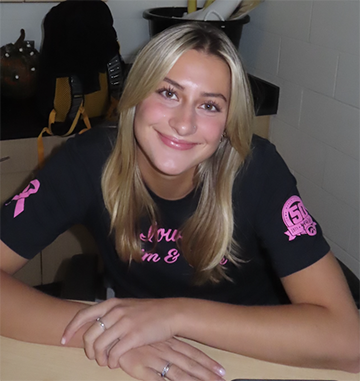
Area of Study Master of Public Affairs Concentration: Public Policy
What did you do before you joined the masters program? I completed a B.A. in Political Science with an emphasis on political behavior and a minor in Human Relations here at the University of Iowa.
Why did you choose to attend the University of Iowa School of Planning and Public Affairs (SPPA)? It was a sense of community I found when visiting the School of Planning and Public Affairs that enticed me to join the program. Everyone I met had a strong sense of motivation for a career in public service, as well as knowledge to effectively generate an impact in their field of choice. I thought coming into the program I was going to be surrounded by individuals who would be smarter than me, which was intriguing, allowing an opportunity to learn from my peers. Also, SPPA faculty were extremely welcoming and cared deeply about the success of each student.
What excites you the most about being apart of the SPPA community? There is always something going on. Whether it be an international food day, happy hour with faculty and students, or the option to attend various conferences. There's always an opportunity to learn and collaborate with others. It has been very exciting to engage with individuals from diverse backgrounds and perspectives leading to very fruitful conversations.
What's next for you? Challenging authority figures and running the world.
What advice would you give to someone considering pursuing a master of public affairs at the School of Planning and Public Affairs? Check out the UIowa SPPA website! Look through the curriculum and past student projects . If it sounds interesting, you should apply.
What do you enjoy doing outside of school? I enjoy making chicken parm. on Mondays like clockwork.

IMAGES
VIDEO
COMMENTS
Learn what a PhD in Biotechnology involves, find funding opportunities and read about career prospects for Biotech doctorates.
The Department of Molecular & Cell Biology at the University of California, Berkeley offers a Ph.D. program focused on the molecular mechanisms inherent to life. This program integrates research with a modern training curricula, teaching, and career mentorship. Our Department is highly interdisciplinary - comprising the Divisions of Cell Biology, Development & Physiology, Immunology and ...
Biotechnology companies are among the most profitable businesses in the modern era, contributing to the development of several widely used products. The best PhDs in Biotechnology allow graduate students to take part in this global biotech revolution.
MS in Individualized Genomics and Health Master of Science Online. MS in Regulatory Science Master of Science Online. MS in Biotechnology and MBA Dual Degree Dual Degree On Campus & Online Washington, D.C. MS in Regenerative and Stem Cell Technologies Master of Science Online. Advance your career with a Biotechnology graduate degree.
The interdisciplinary PhD in Bioscience and Biotechnology gives you the opportunity to work on complex challenges in the field. Through additional coursework, you will specialize your knowledge and gain the technical skills to come up with innovative solutions through the study of cells. The degree will open the doors to competitive ...
Compare the top biotechnology graduate schools in the U.S. Find the top graduate schools offering masters in biotechnology degrees and PhD in biotechnology programs.
See the US News rankings for the world's top universities in Biotechnology and Applied Microbiology. Compare the academic programs at the world's best universities.
A Biotechnology PhD would provide you with the time and resources to research and develop methods and technologies that make use of Biology to improve industry. This could range from improving the efficiency of a biofuel, engineering pigment-producing bacteria to use to dye fabric, or genetically modifying crops to be resistant to a specific ...
Graduate Admissions. Through our well-rounded PhD in Biology and Biotechnology, you will delve into immersive research in biology and biotechnology while also sharpening your professional and pedagogical knowledge and skills. You will take core courses covering professional ethics, grant writing, and experimental design, and hone your ...
Harvard University is devoted to excellence in teaching, learning, and research, and to developing leaders in many disciplines who make a difference globally.
Need help picking between a PhD and a master's in biotech? Consider program structure, career goals, and industry demand.
Looking for a Biotechnology PhD at a top research university? Emory University's top-ranked Molecular and Systems Pharmacology (MSP) graduate program prepares students for jobs and careers in pharmacology, pharmaceutical research, toxicology and biotechnology. The program is a unique opportunity for PhD candidates interested in learning how the drugs of today work and how the novel ...
The PhD in Biotechnology program is a completely new approach to doctoral learning. Designed to train a robust life sciences workforce, the program will create new opportunities for commercialization and entrepreneurship by producing student-founded biotechnology startups. Graduates will gain the knowledge and technical skills needed to develop ...
The training for a Ph.D. in Biology is focused on helping students achieve their goals of being a successful research scientist and teacher, at the highest level. Students work closely with an established advisor and meet regularly with a committee of faculty members to facilitate their progress. The Biology Ph.D. program is part of the larger ...
Compare the top biotechnology graduate schools in your area. Find the top graduate schools offering masters in biotechnology degrees and PhD in biotechnology programs near you.
Program Description Taught by top-tier faculty at the University of Texas at Dallas, the Master of Science in Biotechnology degree program prepares students for careers in biotechnology and biomedicine and helps working professionals develop new advanced skillsets and enhance their career opportunities. The Biotechnology master's program is designed so that students with a wide variety ...
UAB's innovative doctoral degree in Biotechnology represents a breakthrough in graduate biotech education. Marrying the scientific training necessary to conduct research and develop product prototypes with the business acumen and communication skills to required convert a prototype to a real-world start-up or project within an existing ...
Become part of a nationally recognized PhD program at the intersection of biology and engineering. UMass Boston's Bioinformatics, Biomedical Engineering, and Translational Biology (BMEBT) PhD program will bring you on a transformative journey of scientific inquiry and innovation. This cutting-edge program offers a multidisciplinary and research ...
Biotechnology, PSM. In the world's largest biotech hub, combine lab research with business in topics ranging from business development to ethical manufacturing. Our professional science master's program is situated among the greatest concentration of biotechnology activity in the world, with over 200 biotech companies in the Bay Area.
Biotechnology, PhD: 1st Year. Thermodynamics of biological reactions; principles of fermentation processes; chemical engineering applications to bioreactor analysis. Systems-oriented approach to the problem of remodeling and reconfiguring the many molecular components of the cell in order to achieve a desirable phenotype.
Pursuing a career in biotechnology involves being in one of the most innovative fields available. People who work with biotechnology make it possible to develop scientific advances in genetics, biochemistry, biology, agriculture, environmental protection, medicine and other critical fields. If you enjoy science and math, a career in biotechnology can give you the opportunity to contribute to ...
Biotechnology is a broad discipline in which biological processes, organisms, cells or cellular components are exploited to develop new technologies. New tools and products developed using these systems are useful in research, agriculture, industrial processes, and the clinic. Within the research area of Biotechnology we have two research themes:
The MS in biotechnology at Johns Hopkins prepares you for hands-on laboratory work and research careers in the biotechnology field.
What is a Professional Science Master's (PSM) program? PSM programs are Master's degree programs that include a mixture of science and entrepreneurship-based courses. Students in our PSM in Biotechnology program will take about ⅔ science courses and ⅓ bioentrepreneurship courses.
UB Awards 320 Biomedical Science Degrees; 35 Earn PhDs. By Dirk Hoffman. Thirty-five doctoral, 76 master's and 209 baccalaureate candidates were eligible to receive degrees in biomedical science fields during the May commencement ceremony. Six graduate students and nine senior undergraduates were singled out for special honors, including four ...
Program Description. This 5-year BS/MS program combines two existing programs: the BS in Biotechnology and the MS in Biotechnology. Biotechnology is an interdisciplinary program that offers students an opportunity to take courses in biology, environmental sciences, chemistry, engineering, management, public policy, and law.
The teaching assistant will primarily be responsible for academic education (in English) during the practical sessions of the courses conducted by RC1. This includes courses of General Biology, Molecular Biology, Plant Biology, and Plant Biotechnology. Additionally, the teaching assistant will provide support to researchers of RC1 when not ...
Insiders believe the region's life sciences industry, which in recent years has seen companies forced to trim staff and narrow their research focus to conserve cash, can and will rebound.
Satya Singh, a Seattle-area technology and startup leader who was previously a data platform executive at Expedia, co-founded Scispot, a data infrastructure platform for biotech companies.
Area of StudyMaster of Public AffairsConcentration: Public PolicyWhat did you do before you joined the masters program?I completed a B.A. in Political Science with an emphasis on political behavior and a minor in Human Relations here at the University of Iowa.Why did you choose to attend the